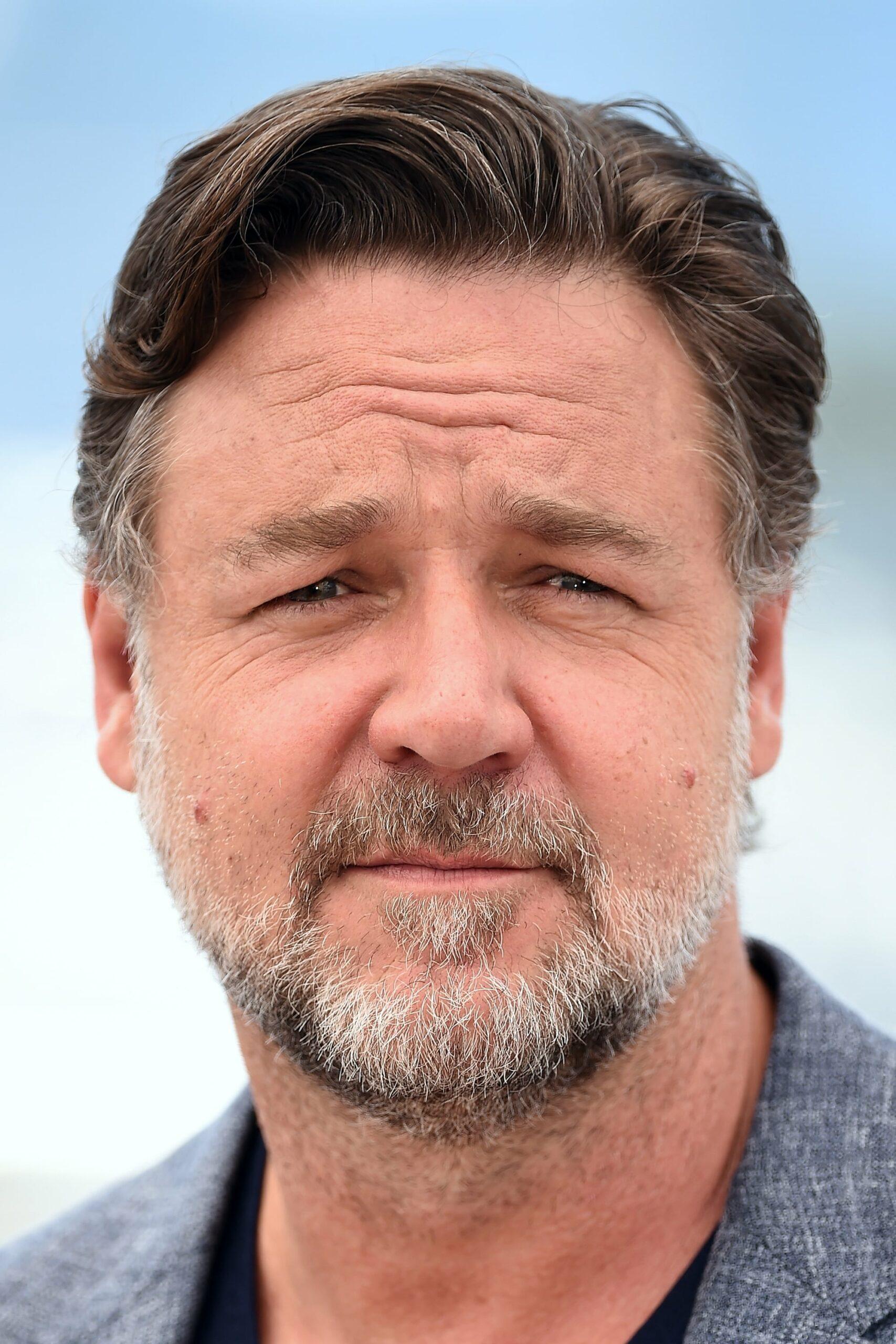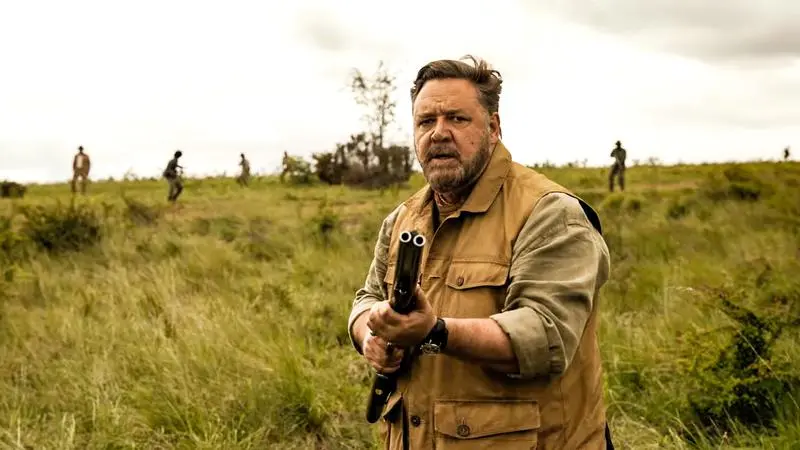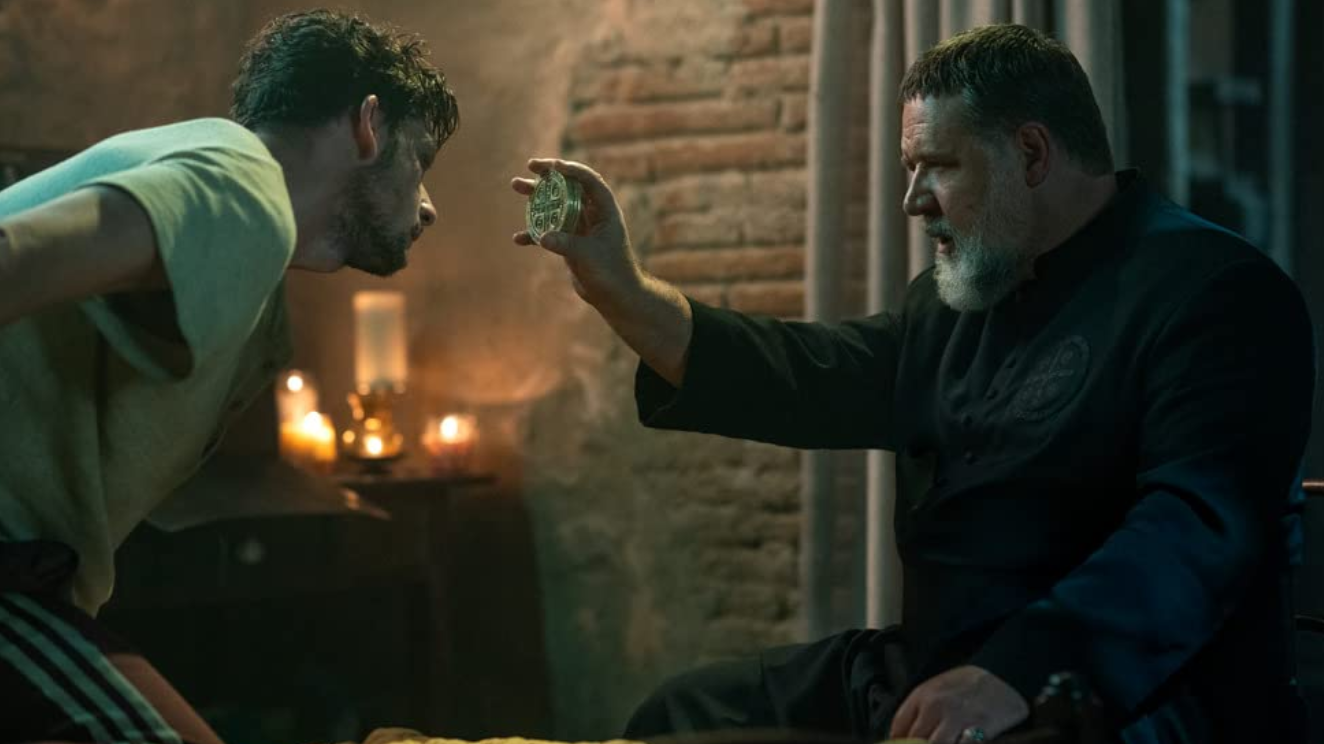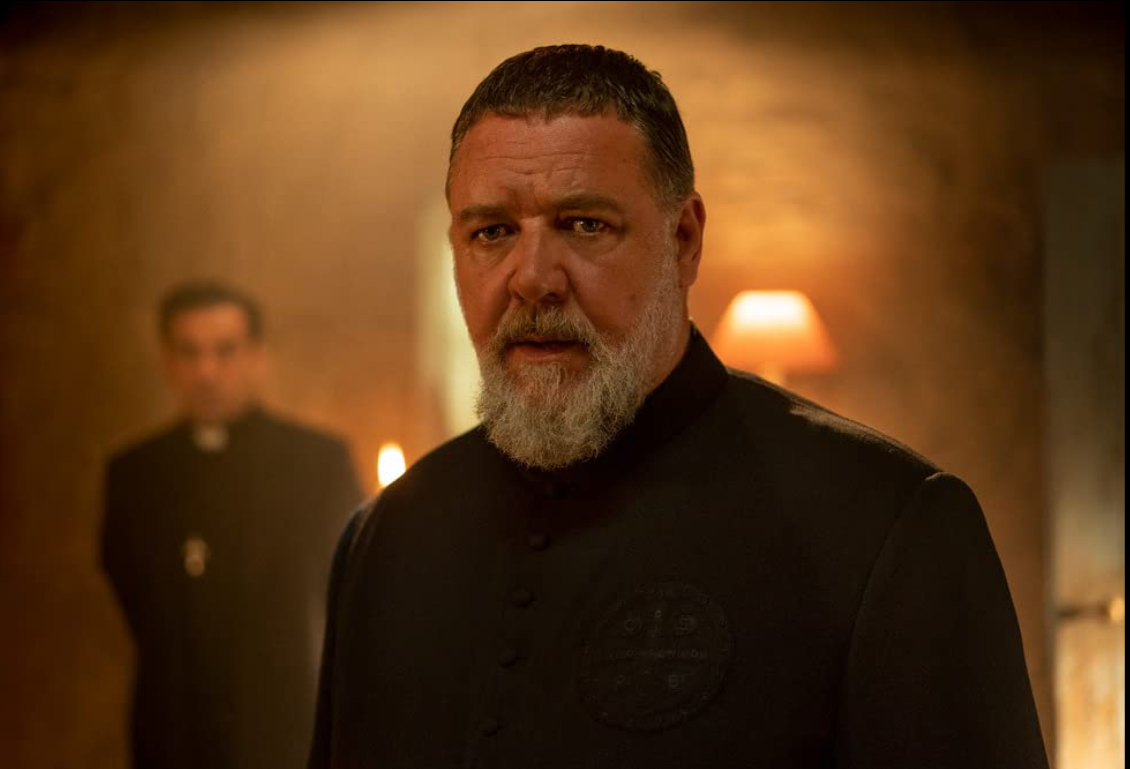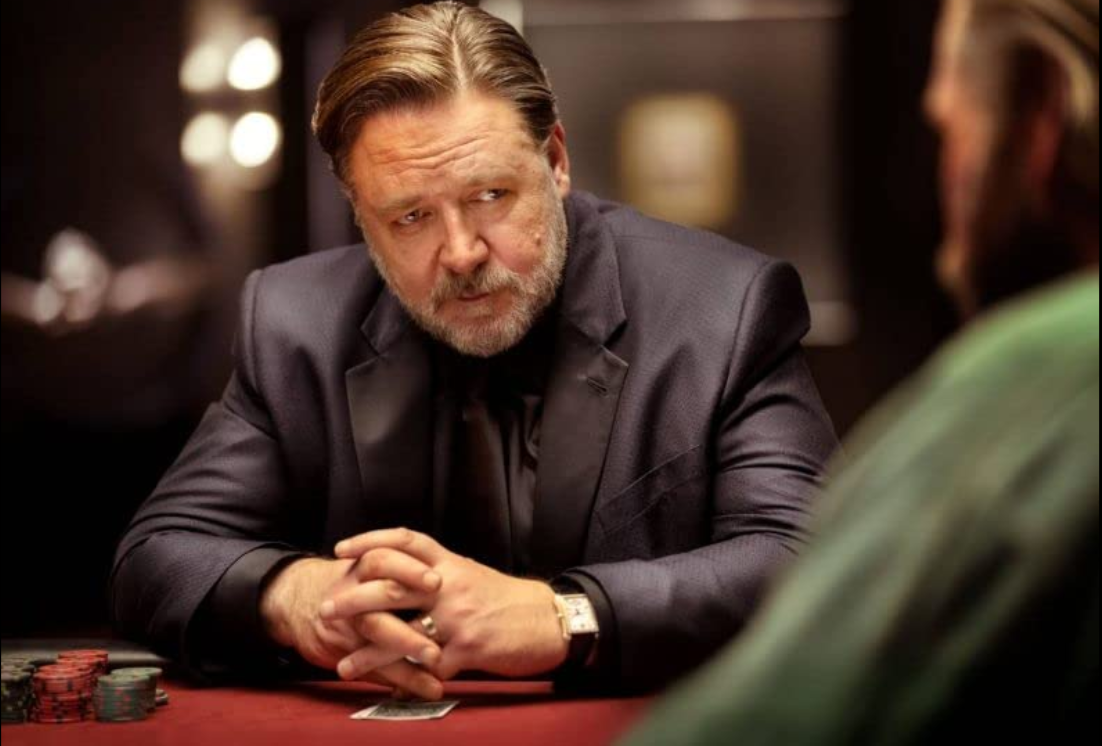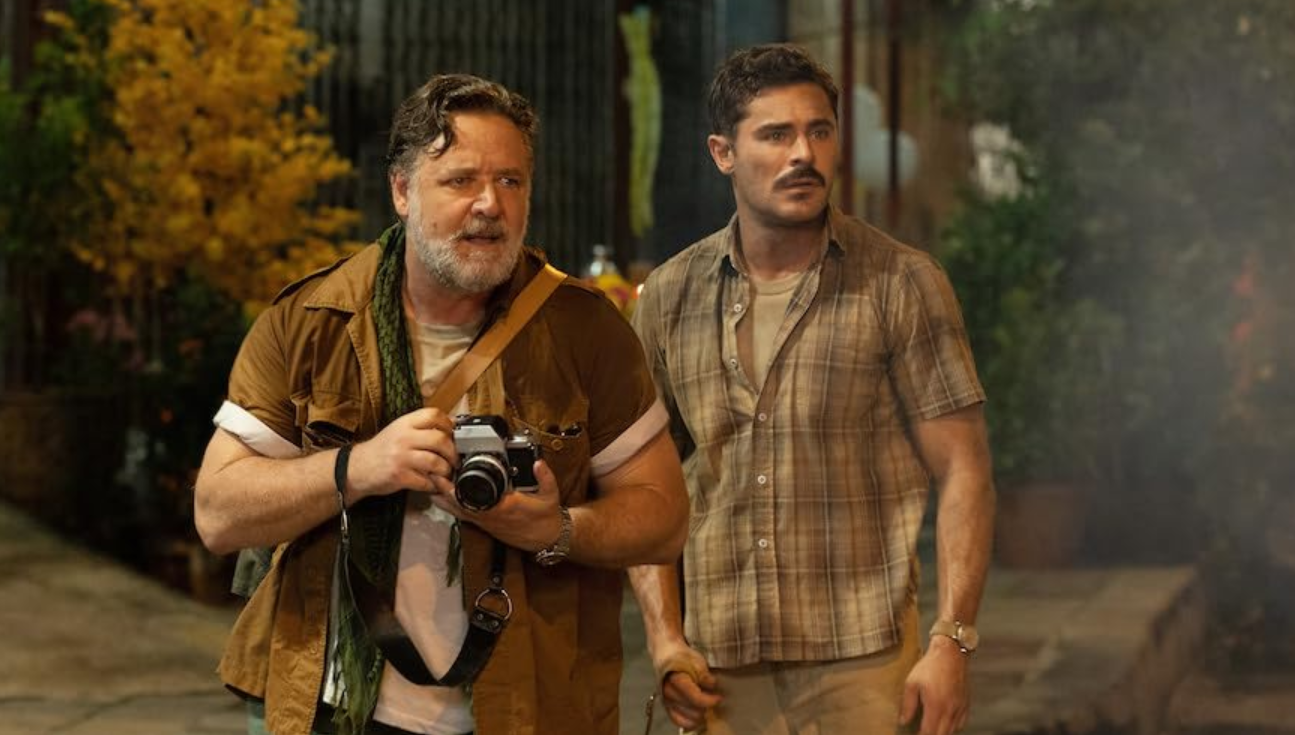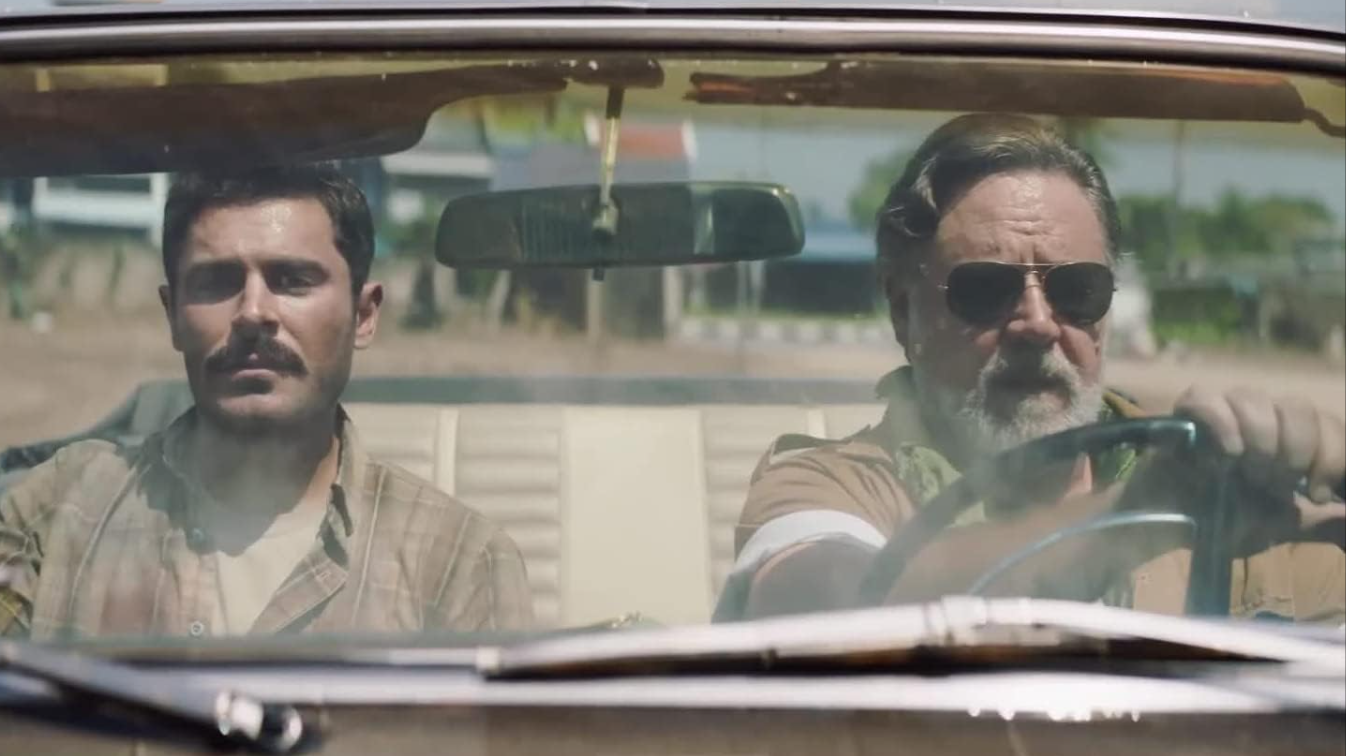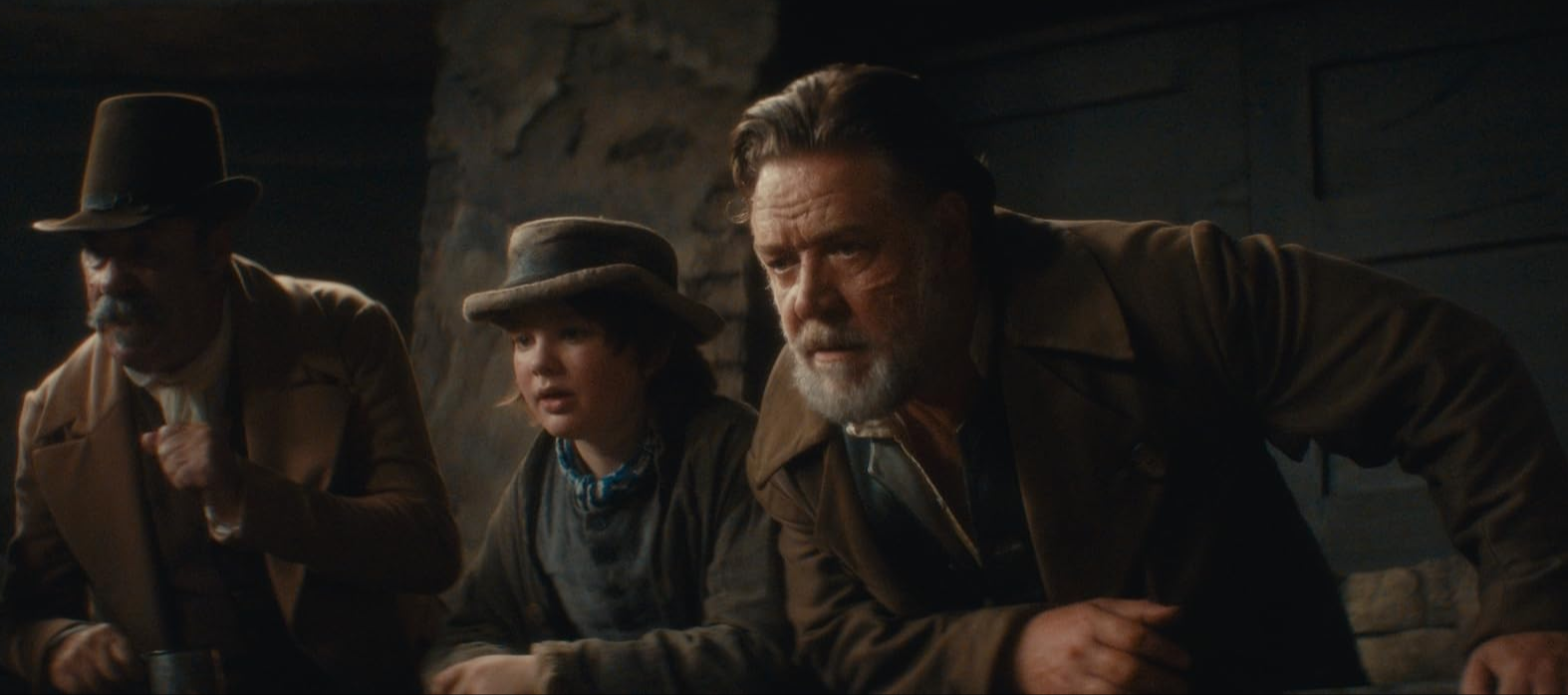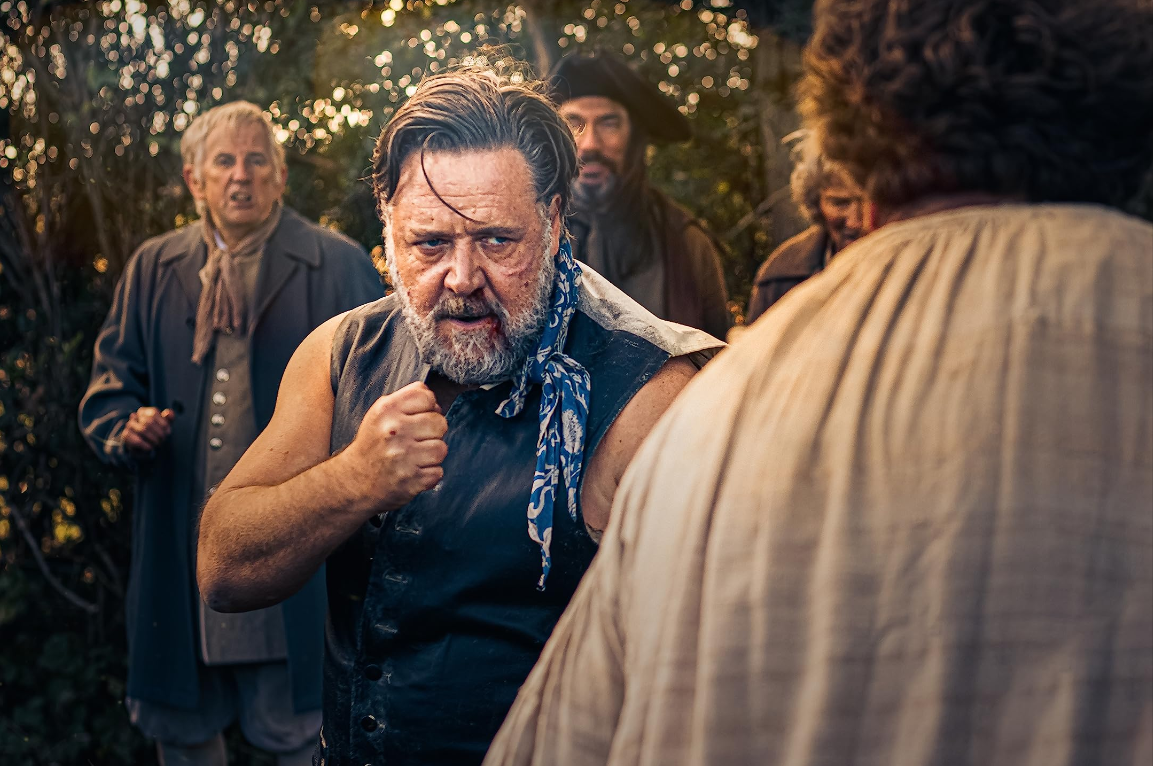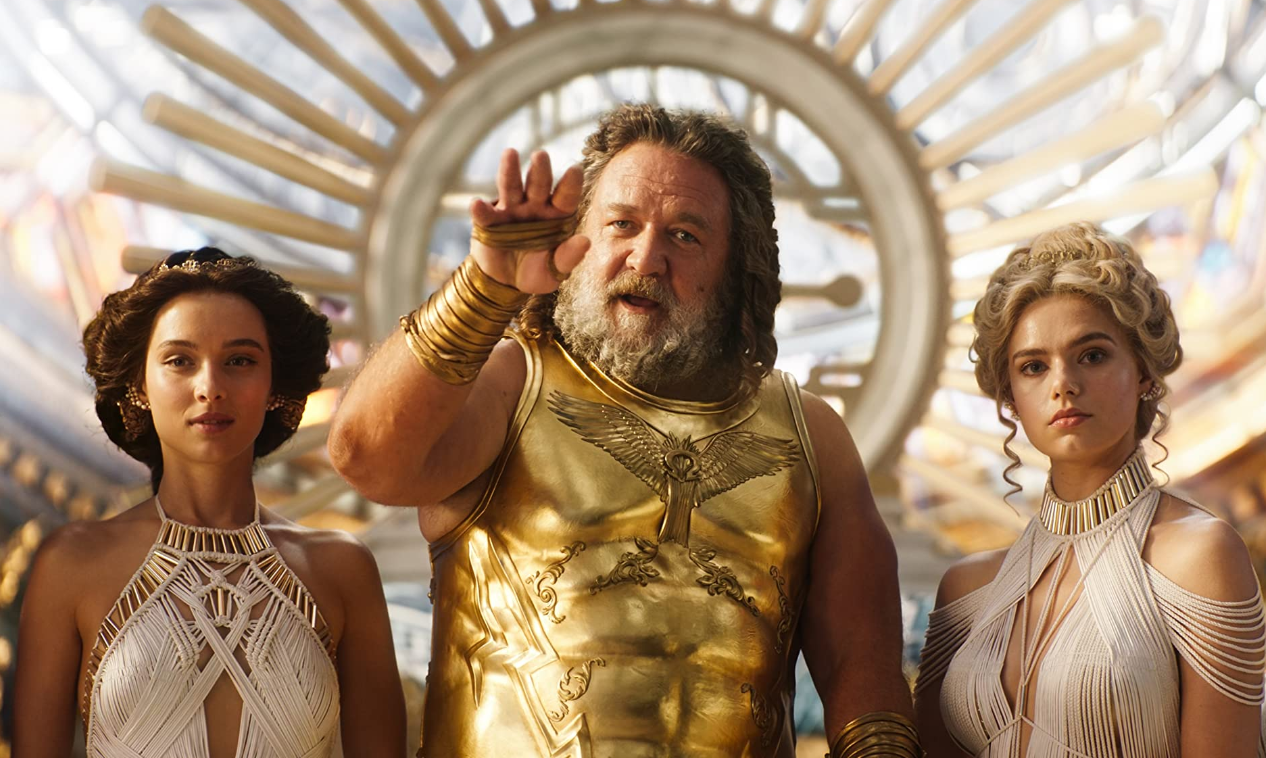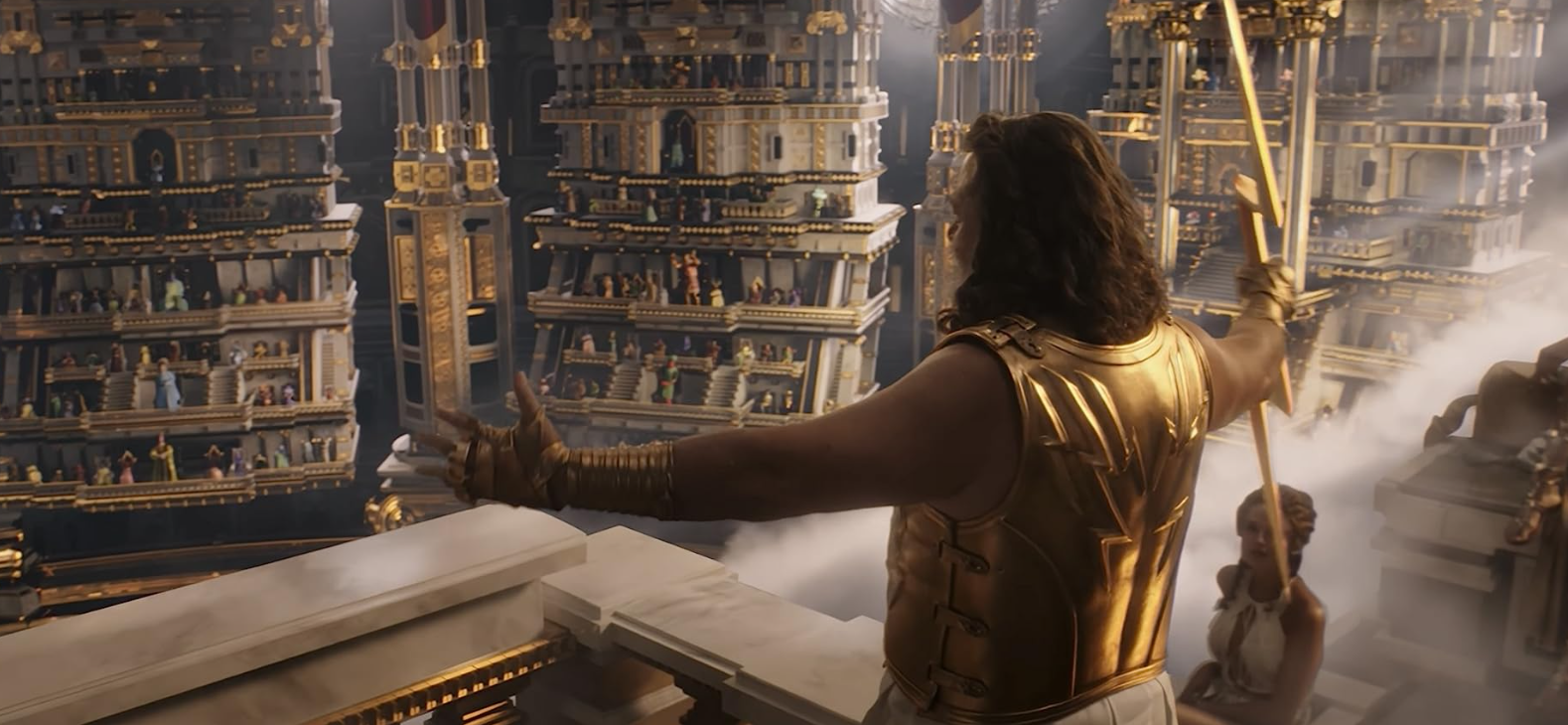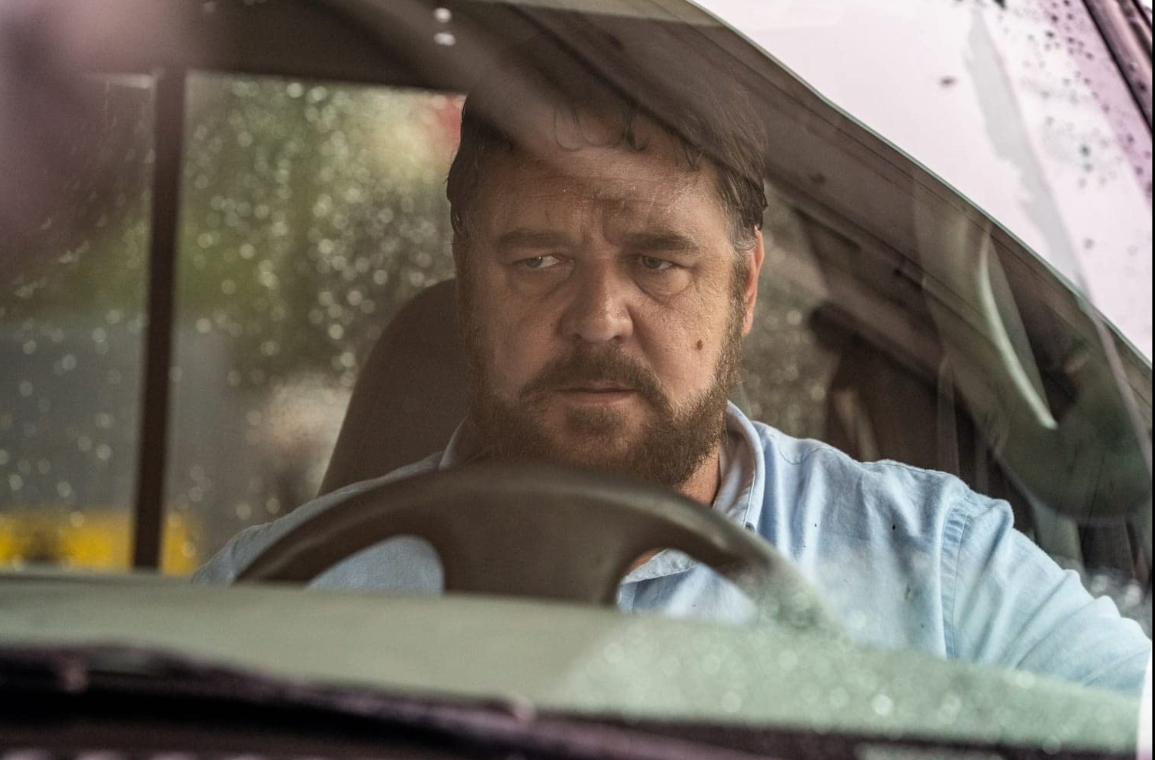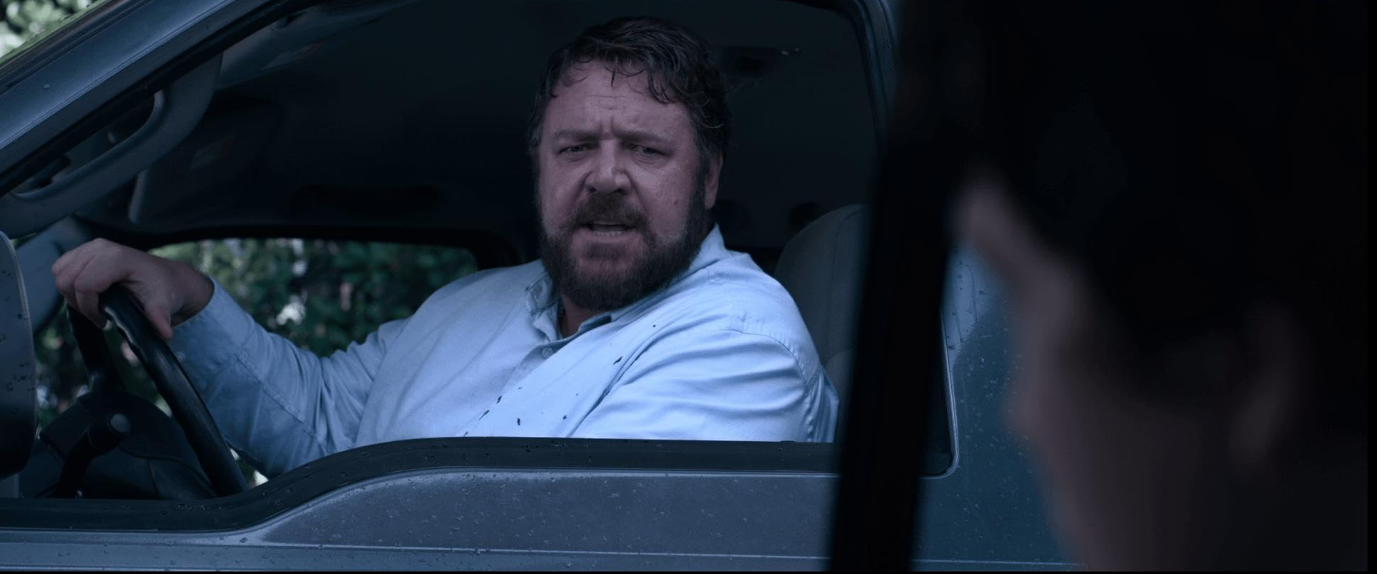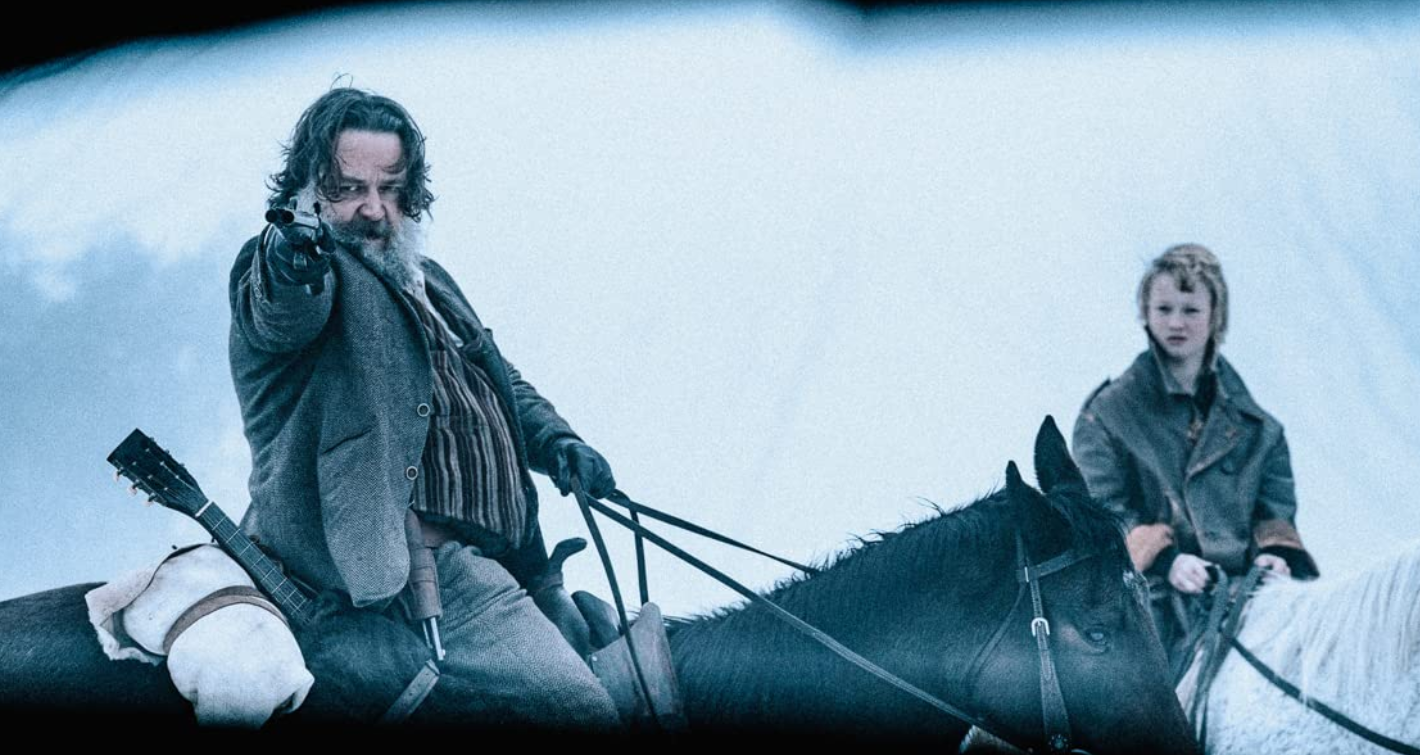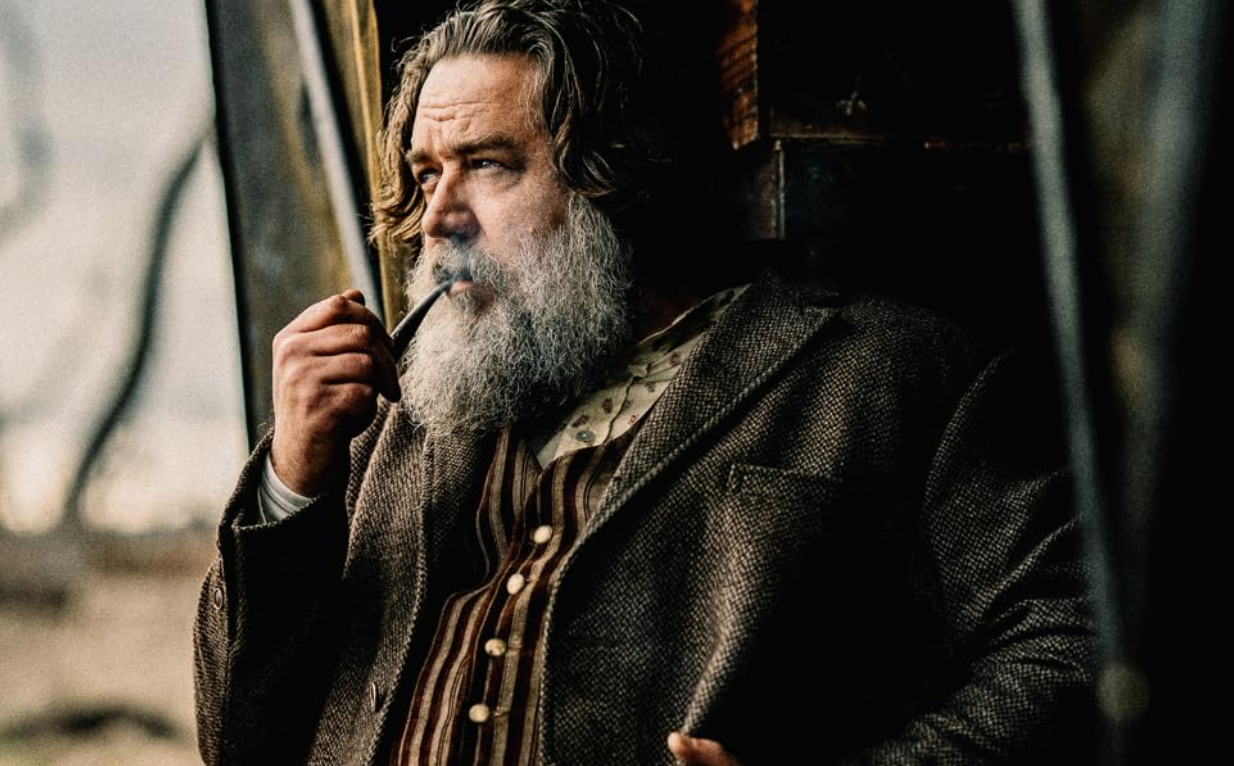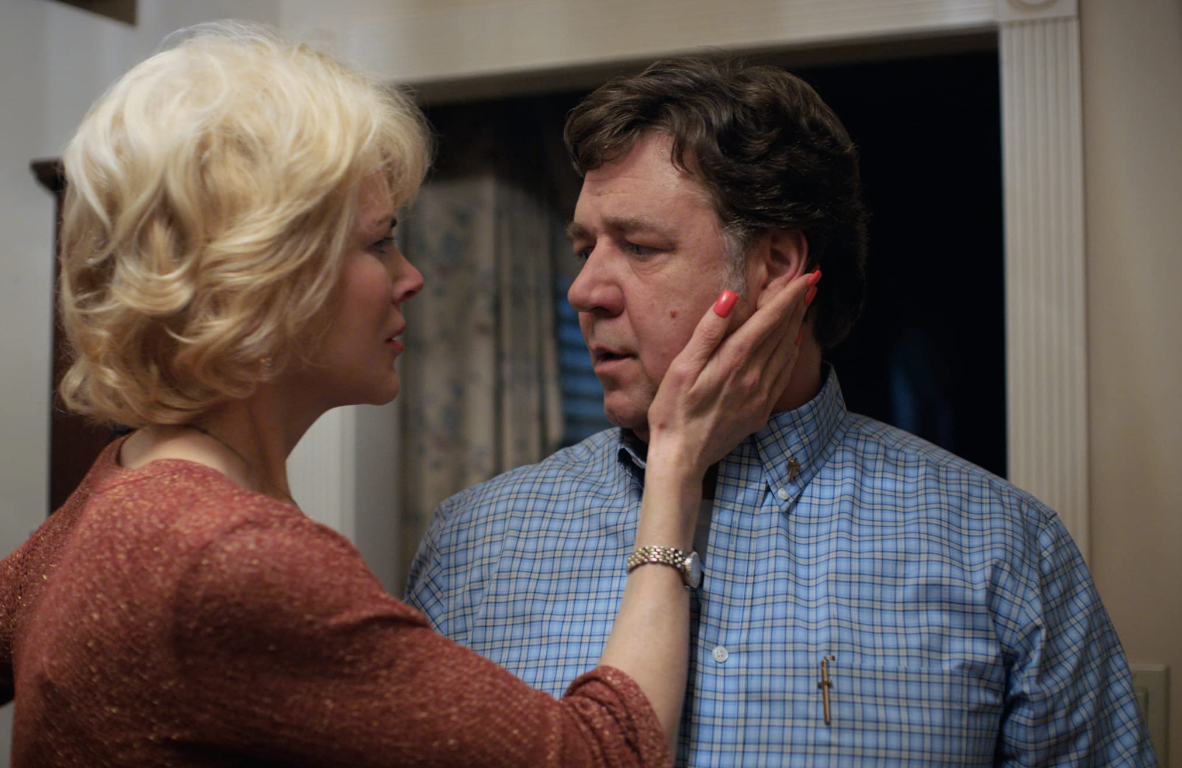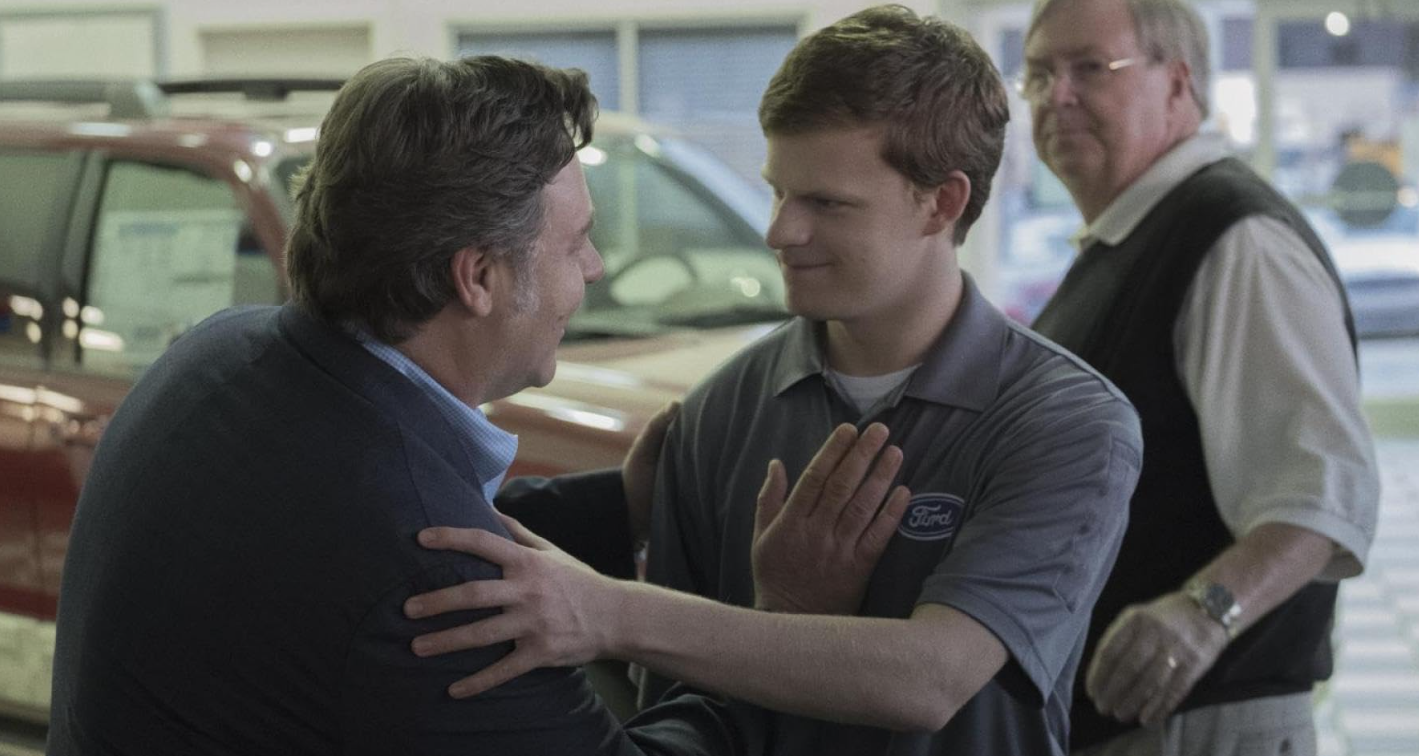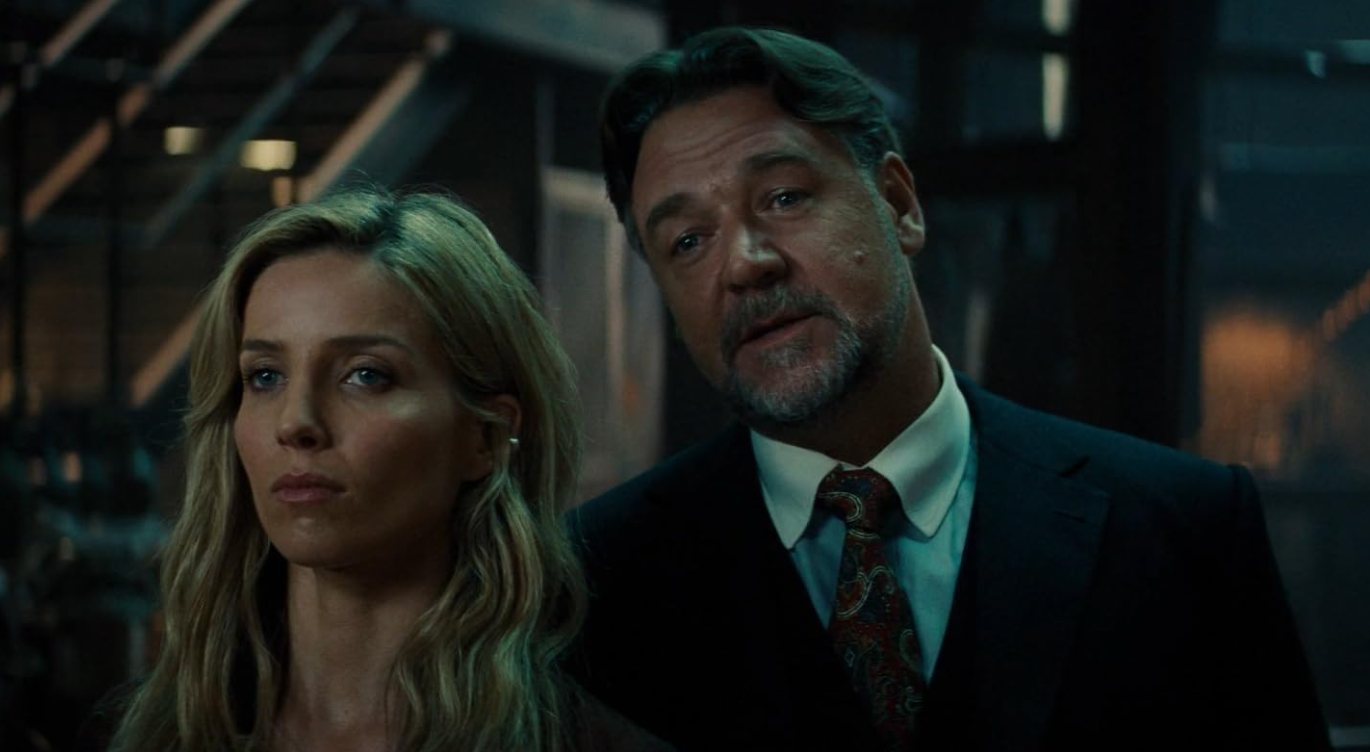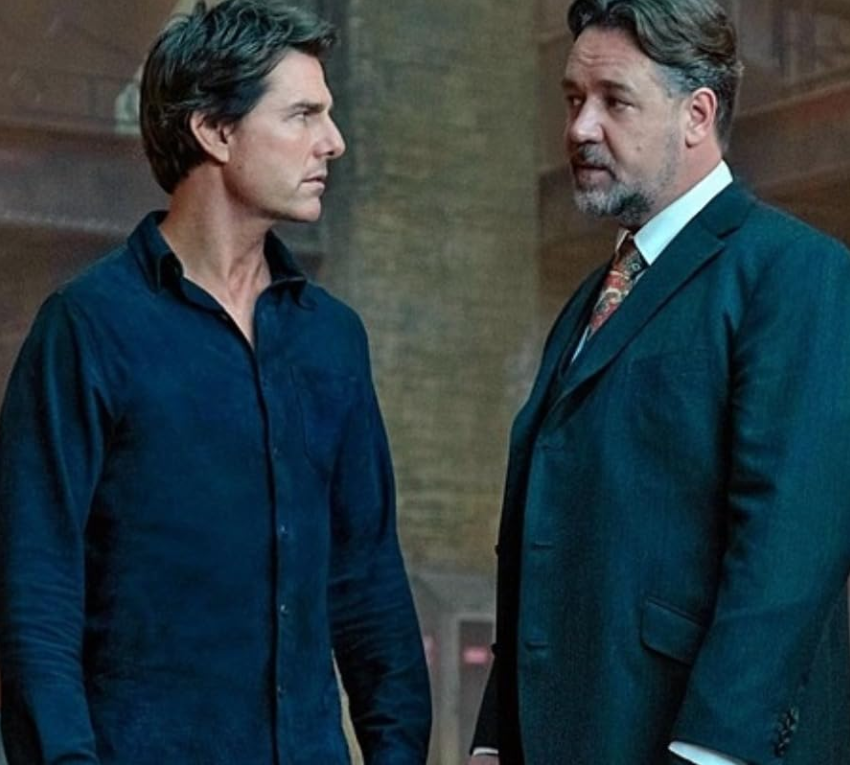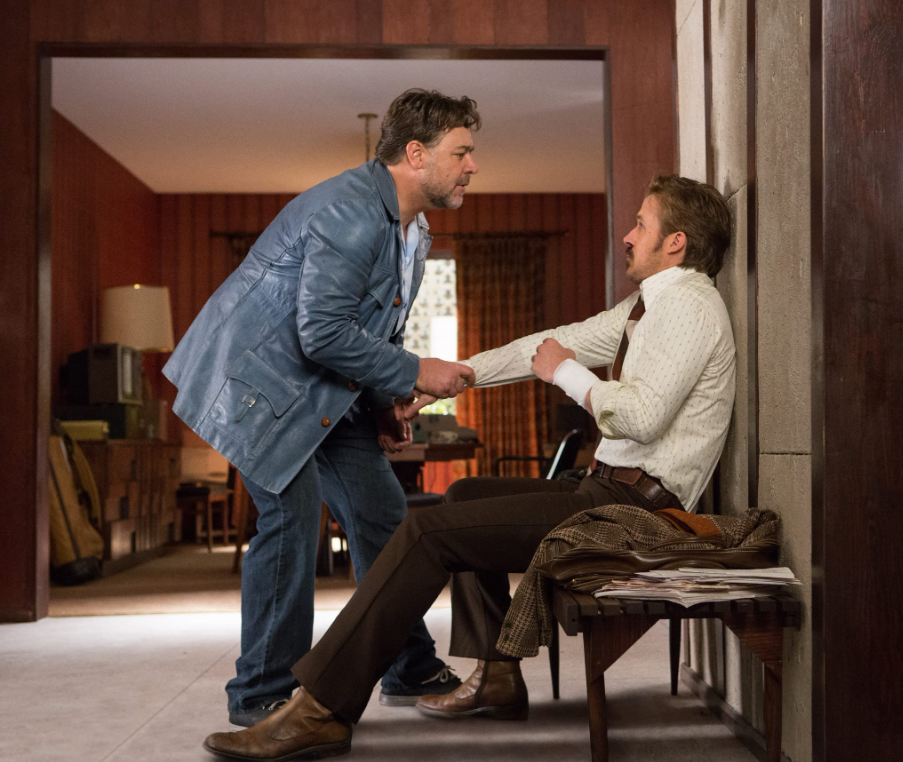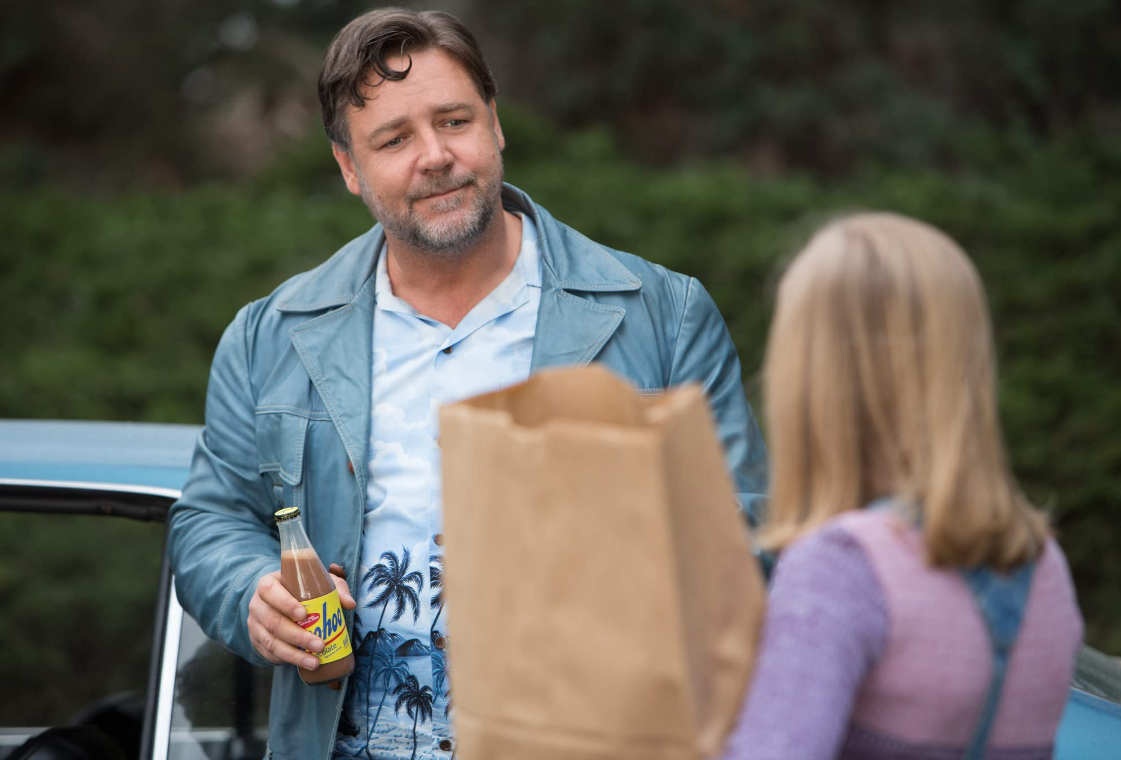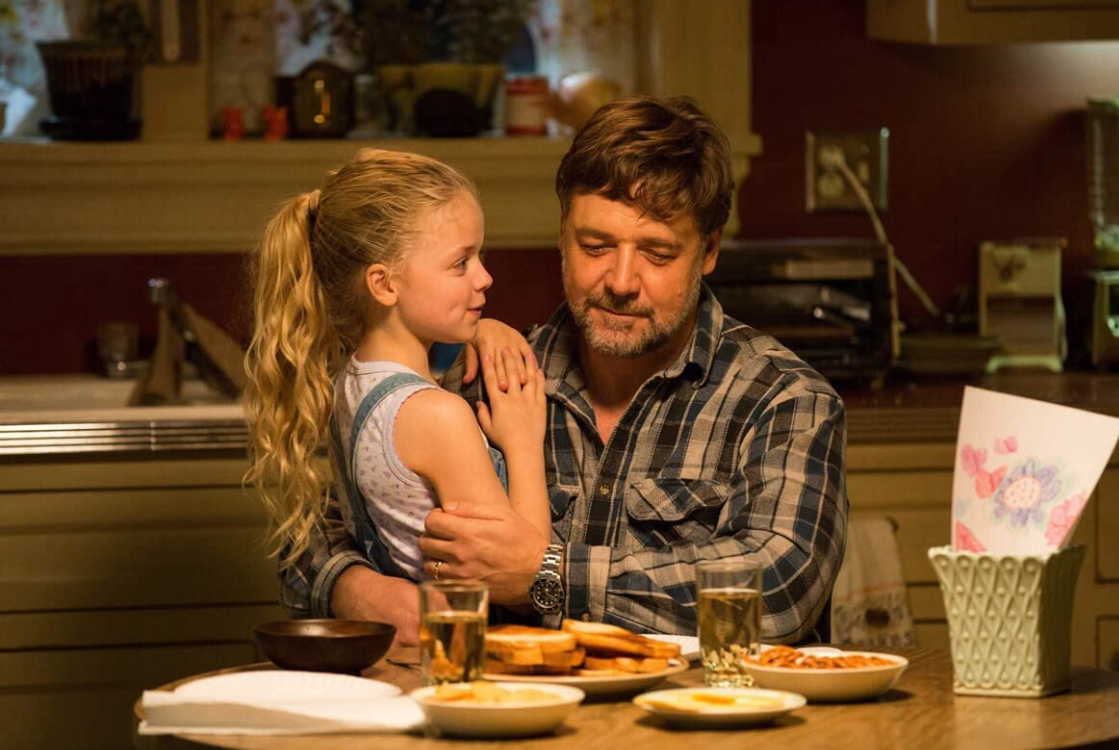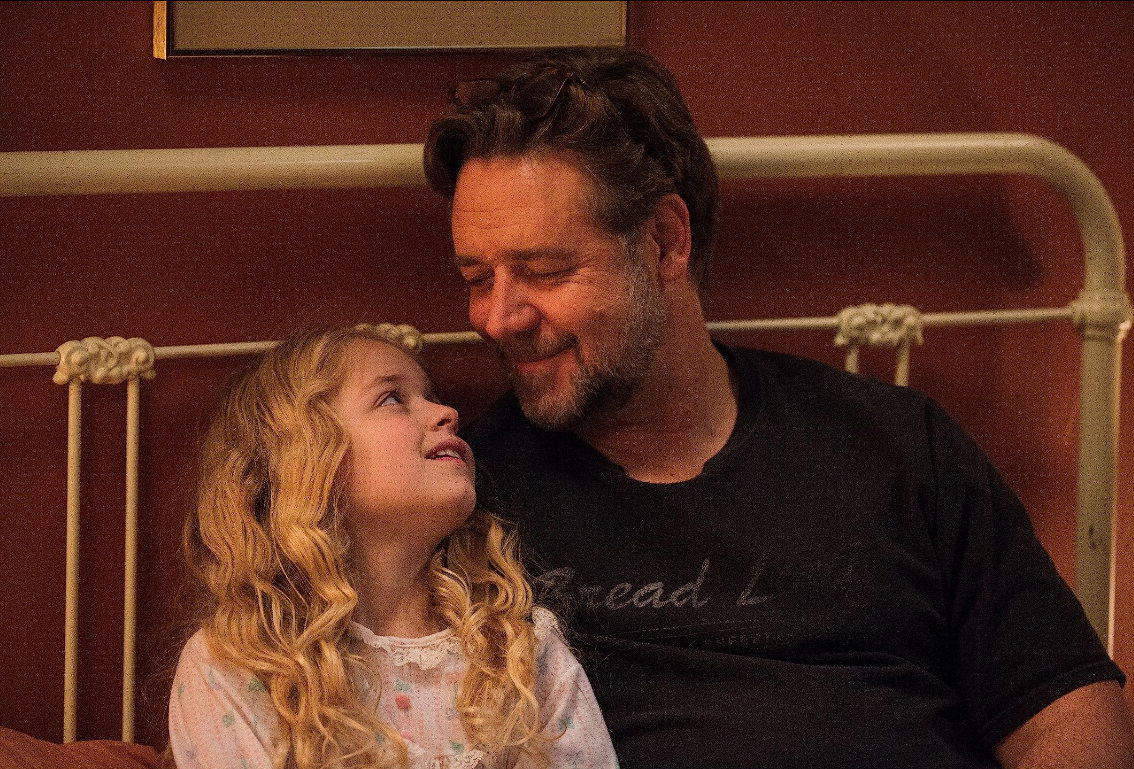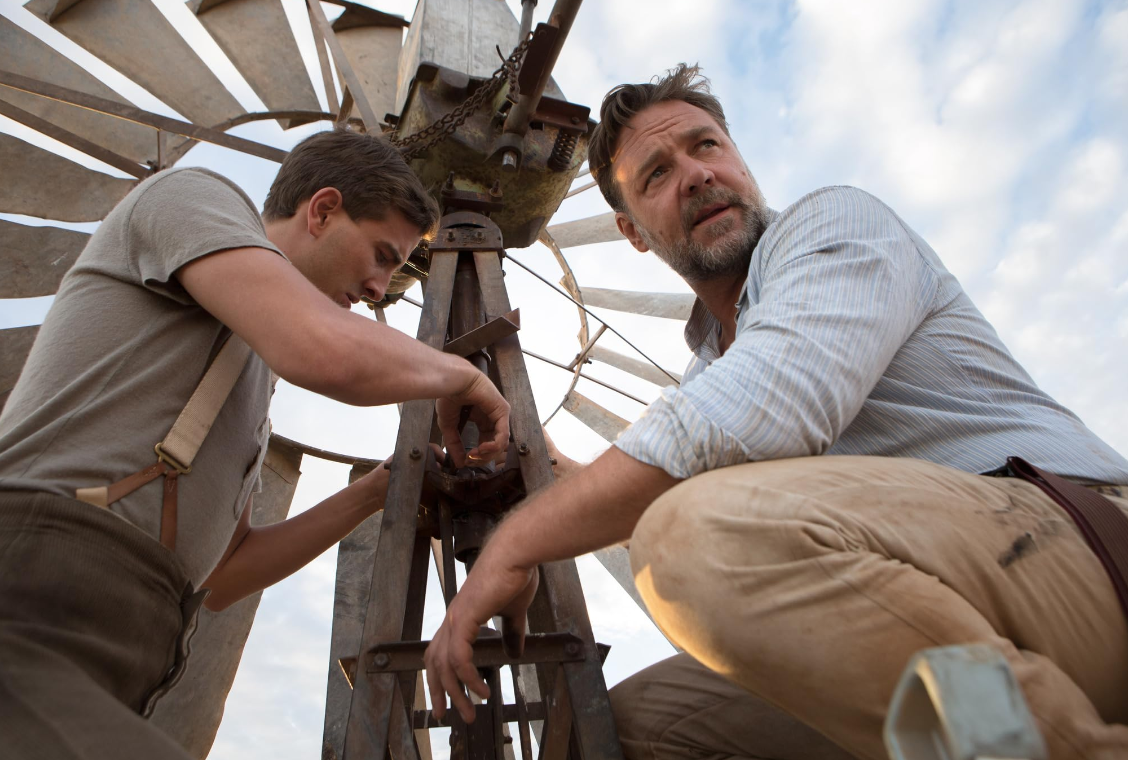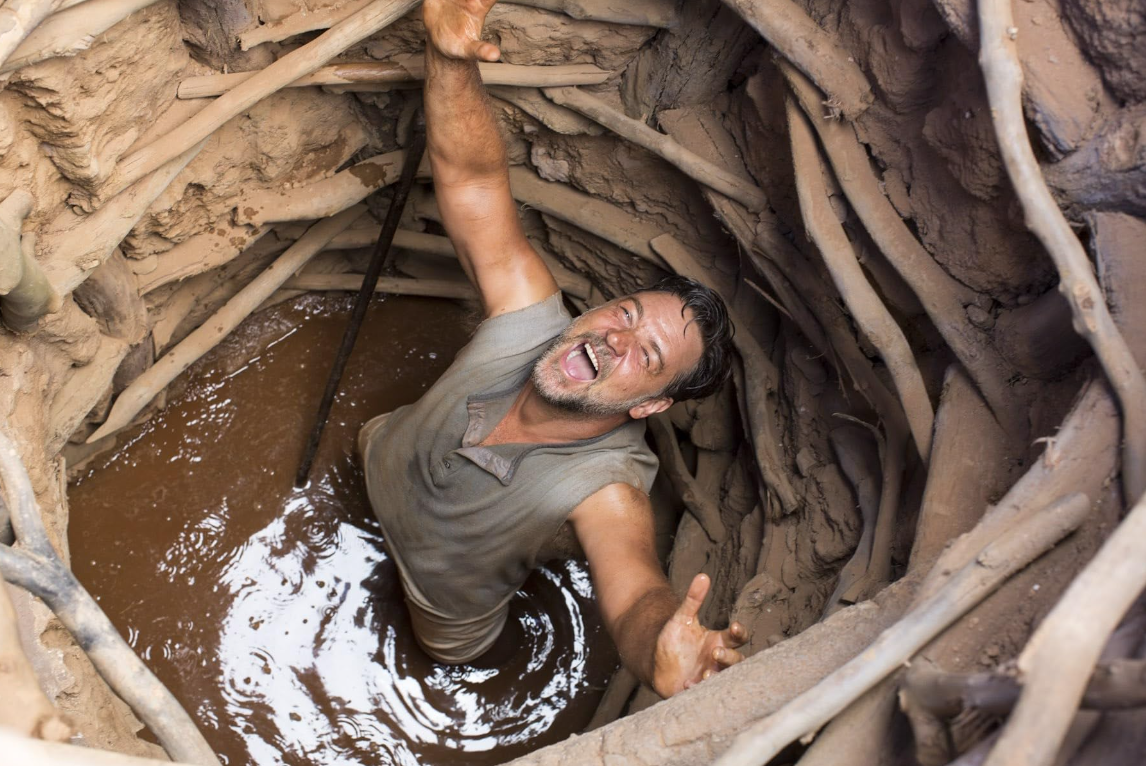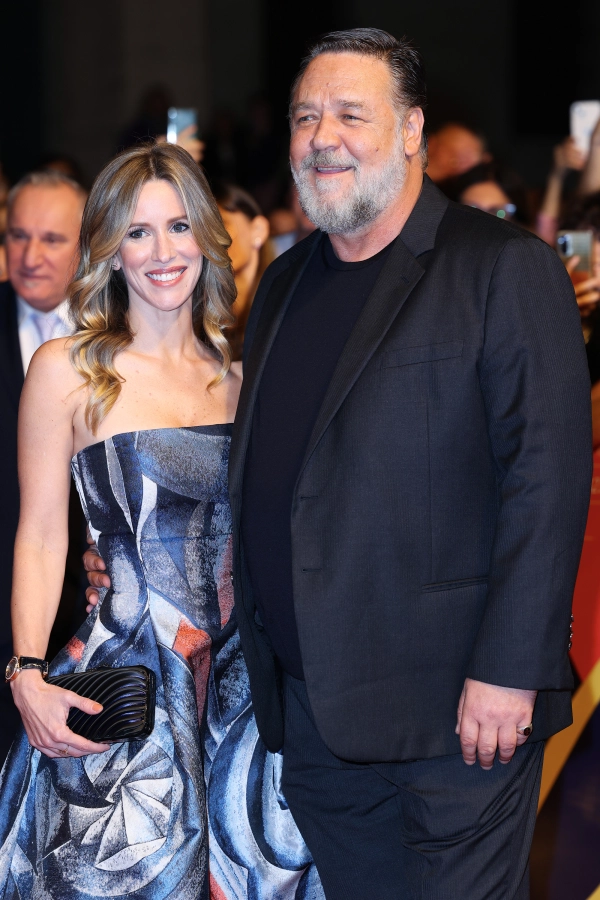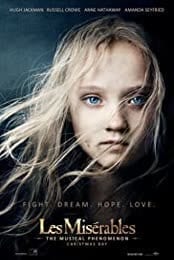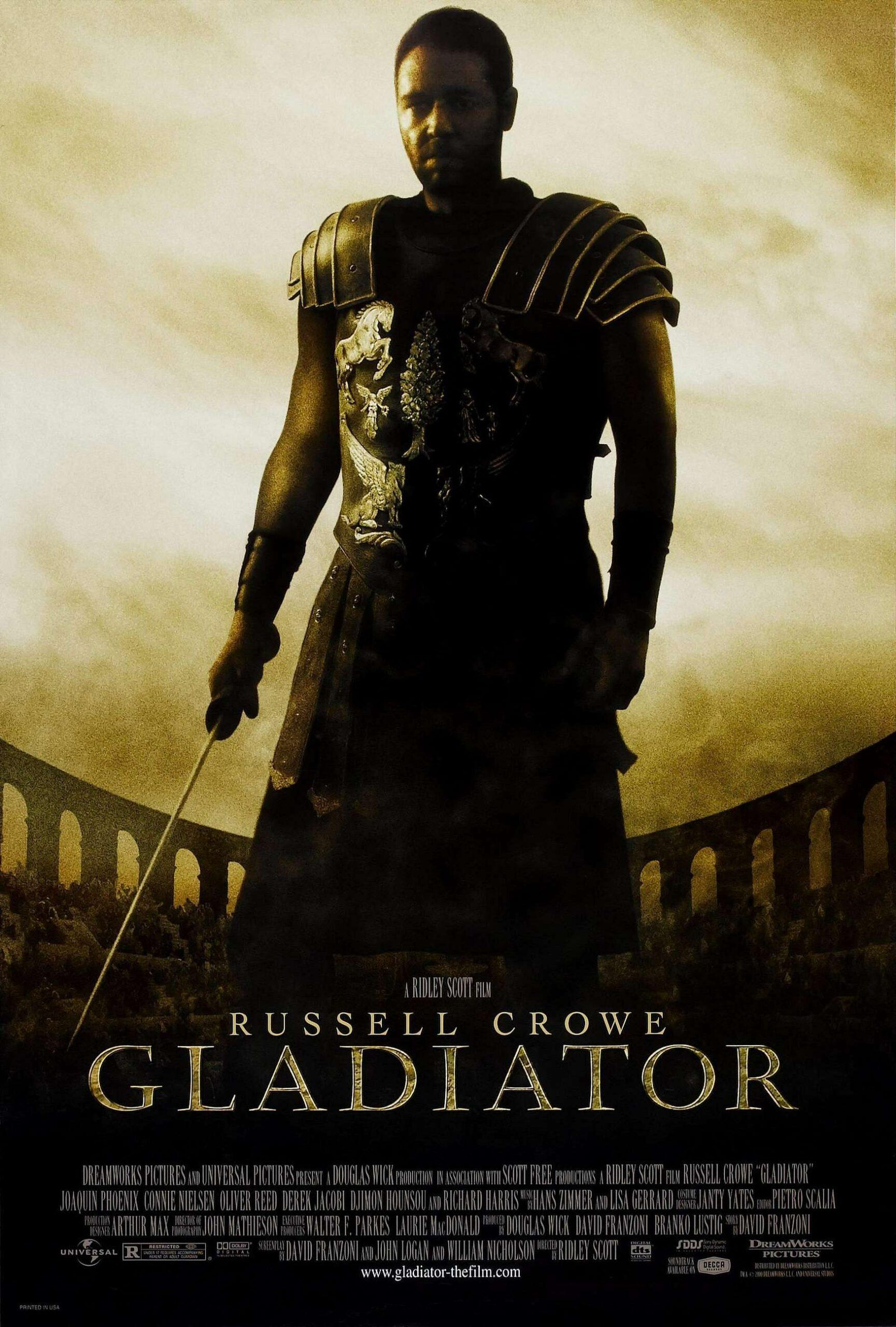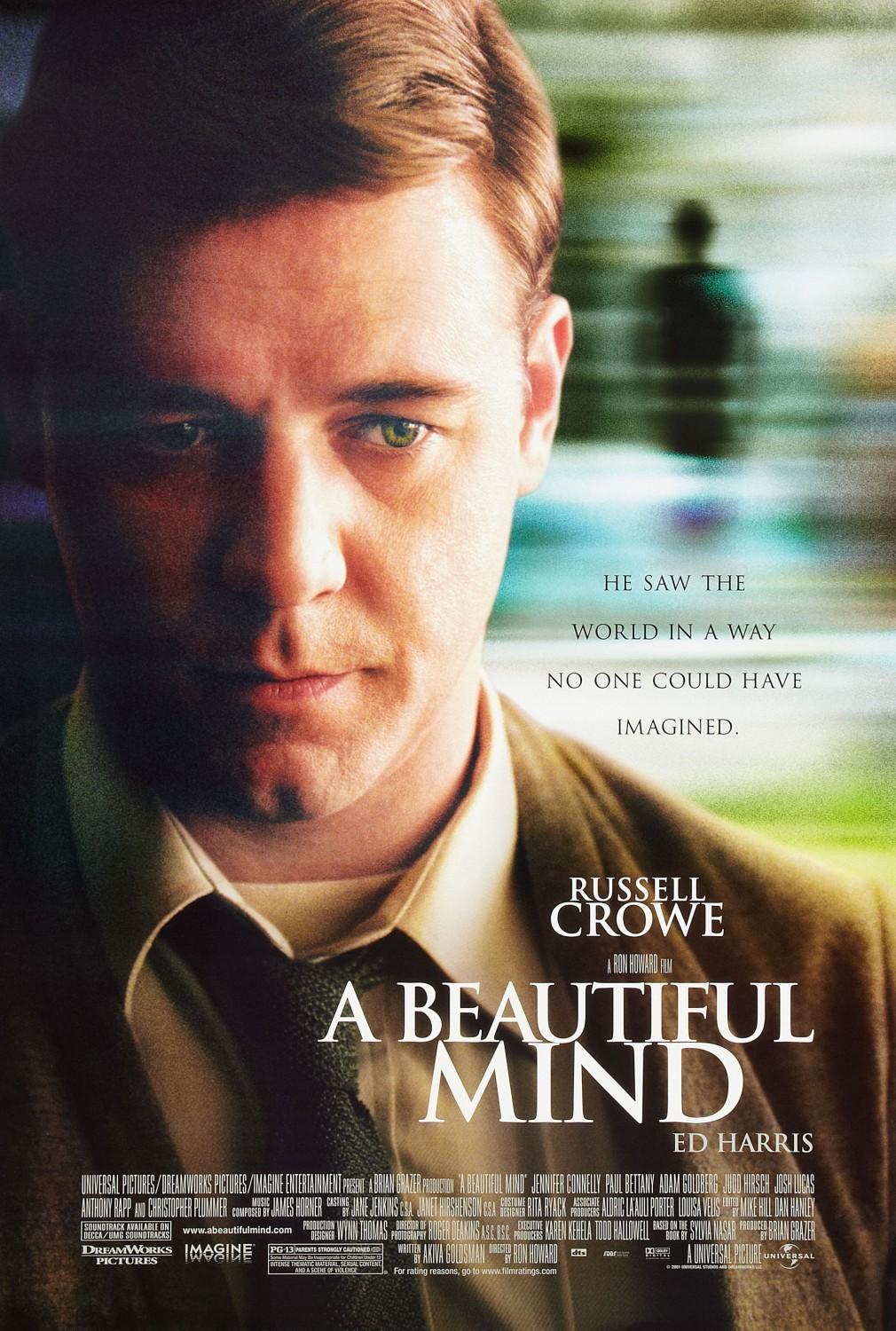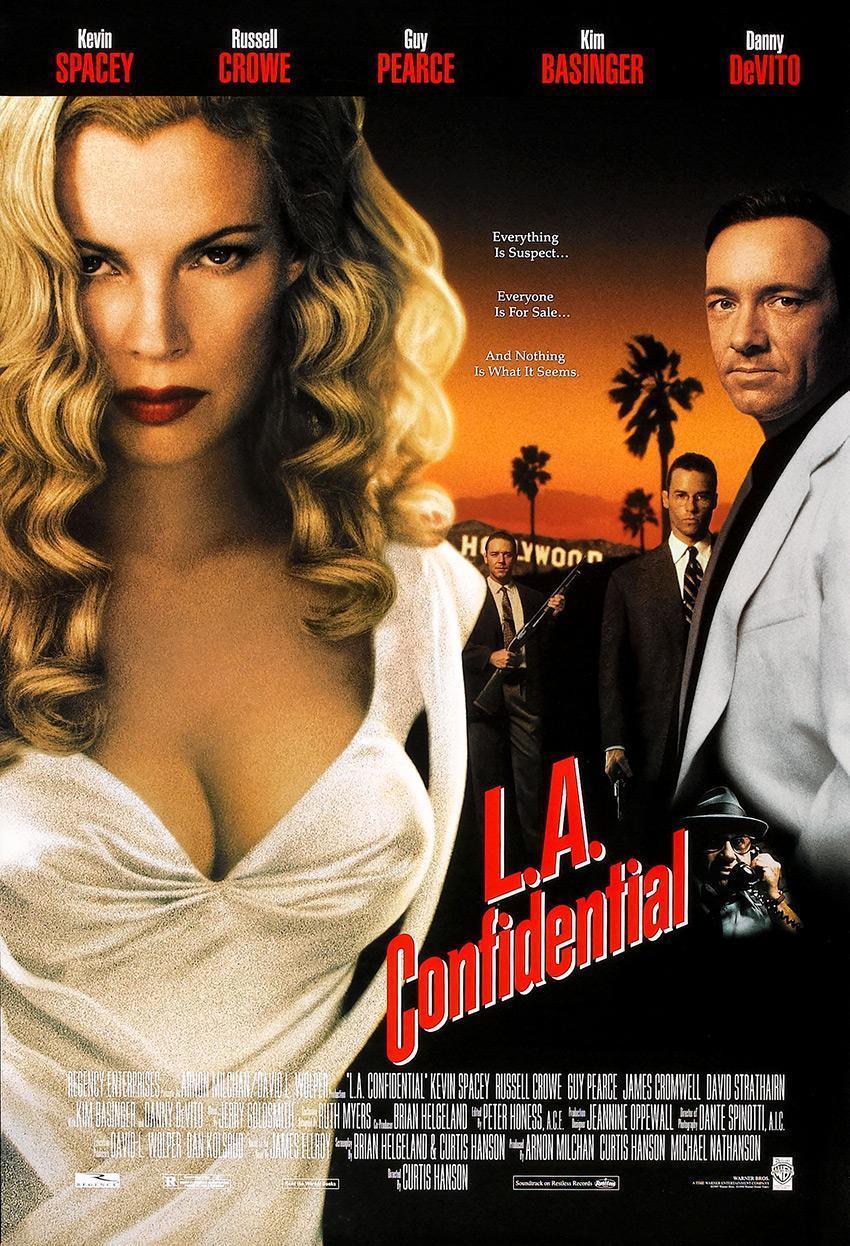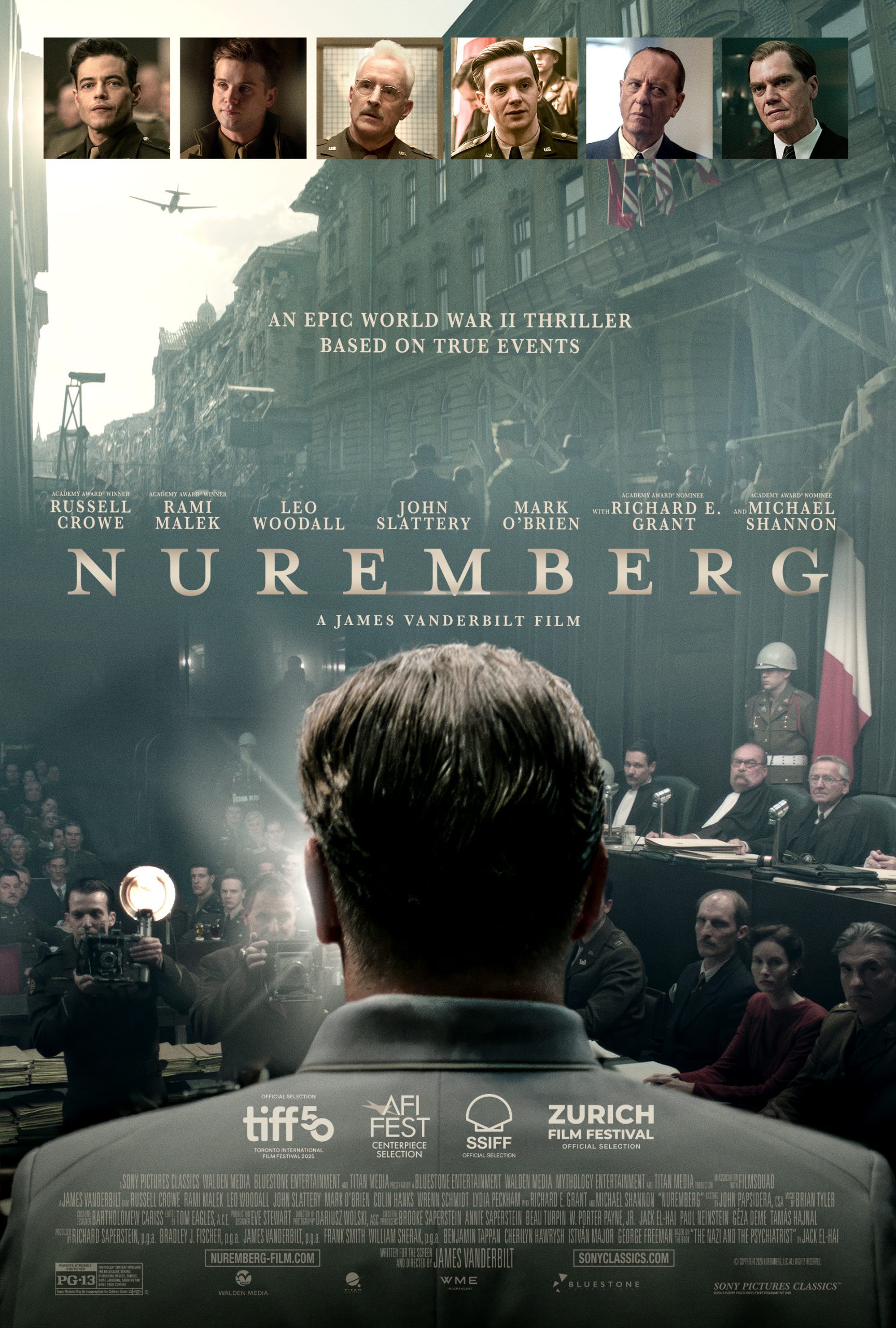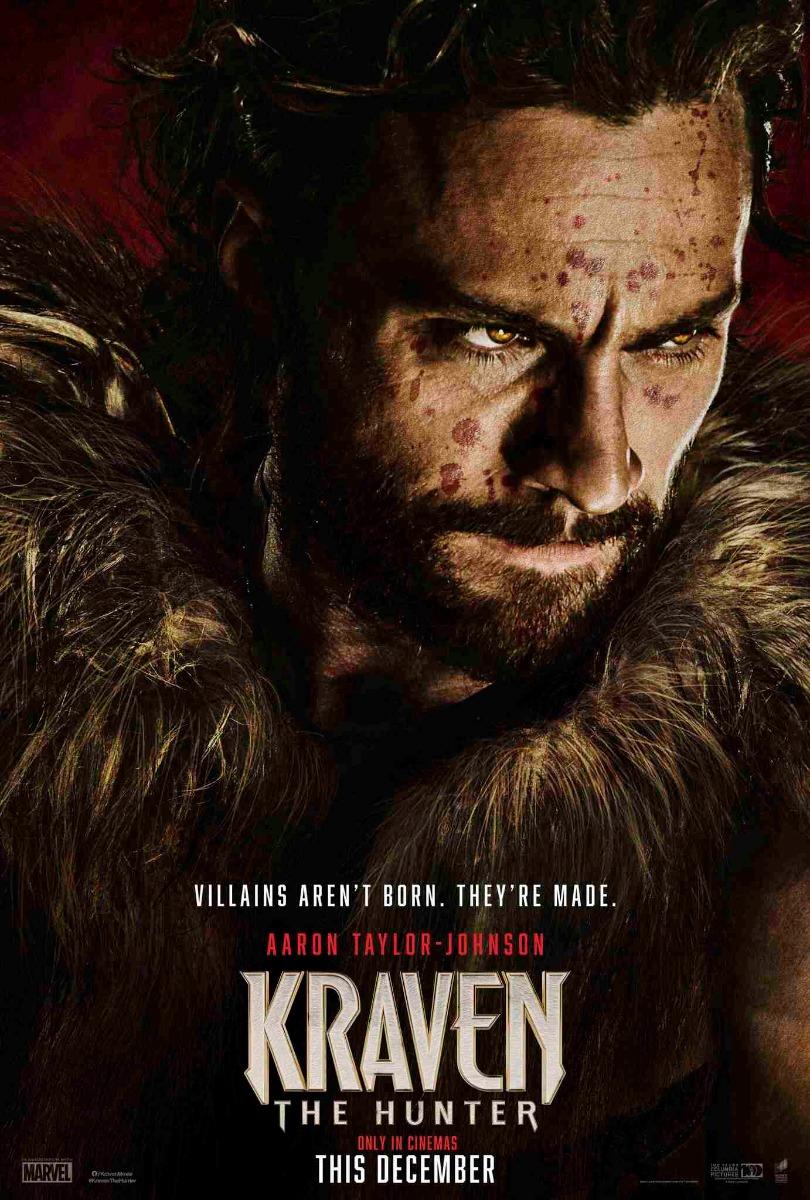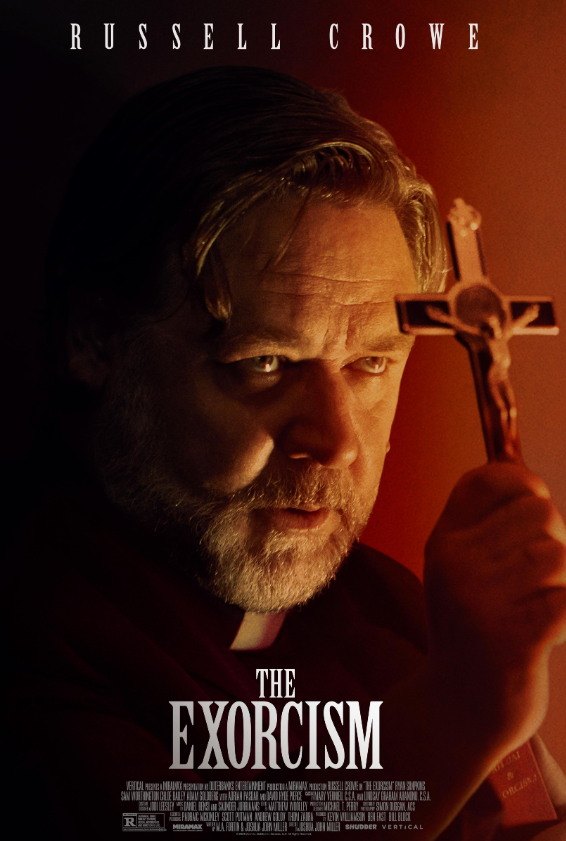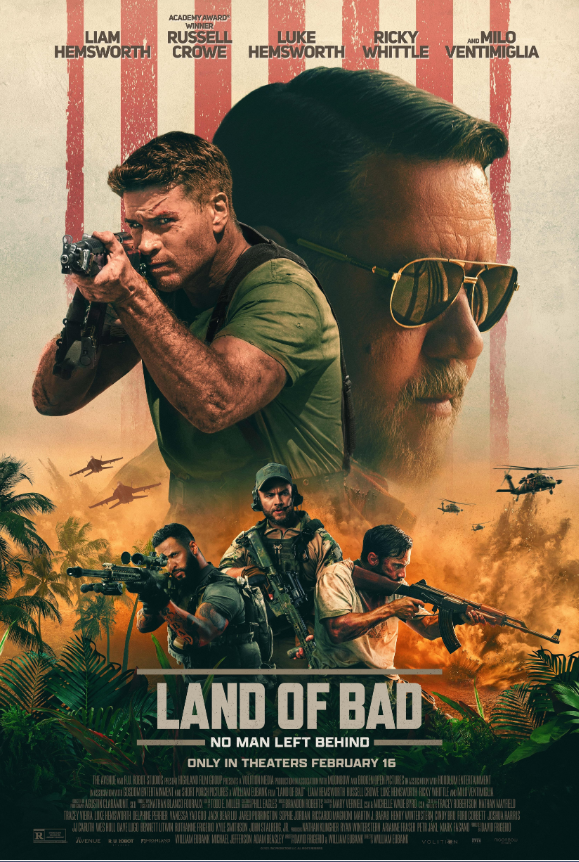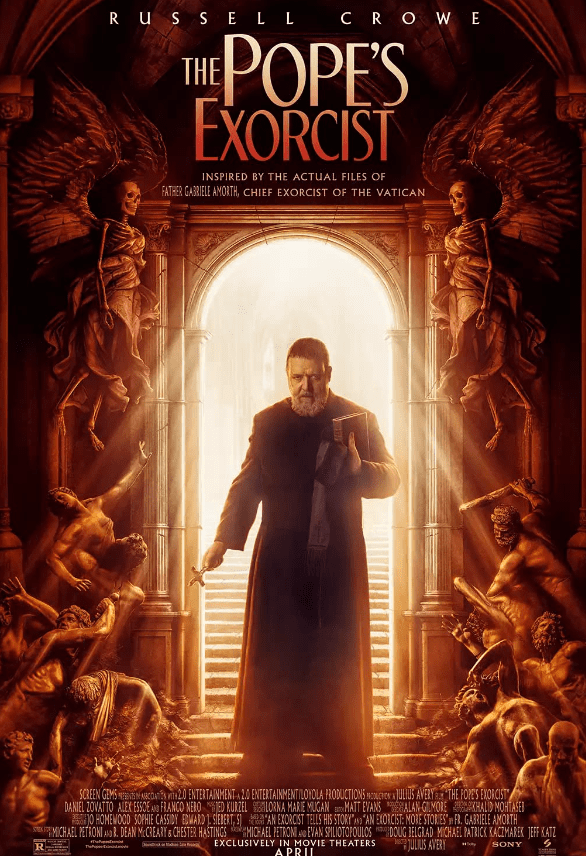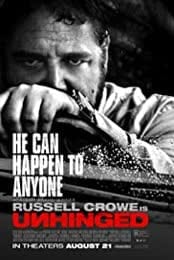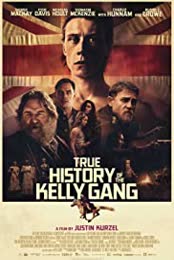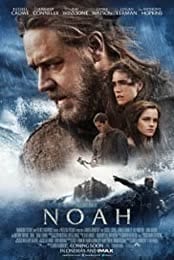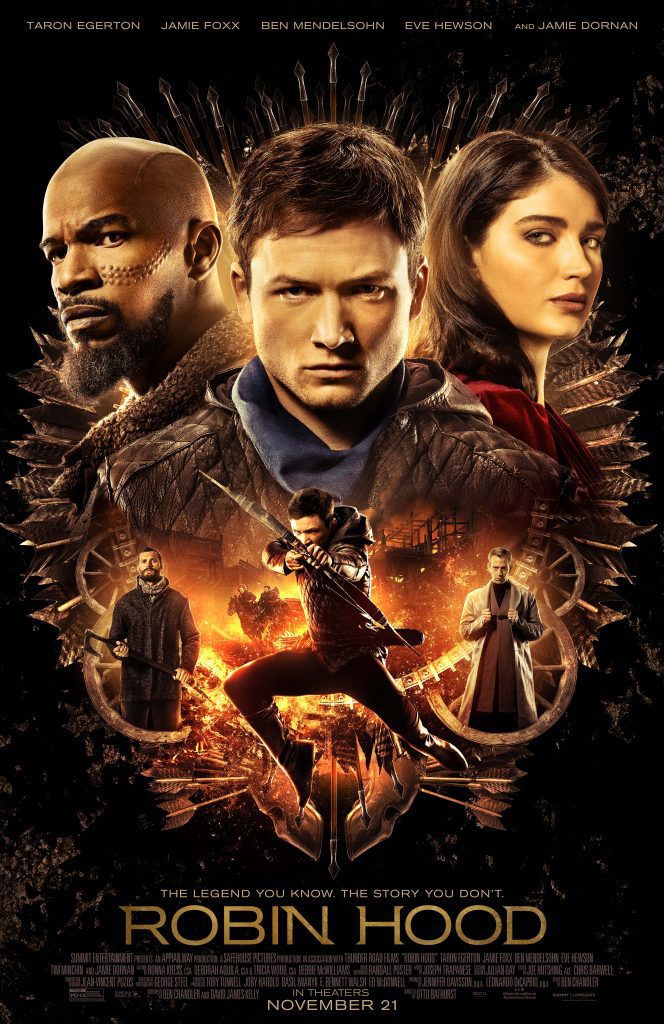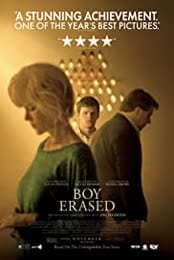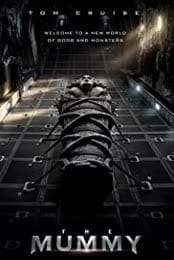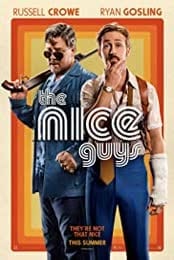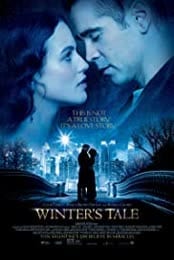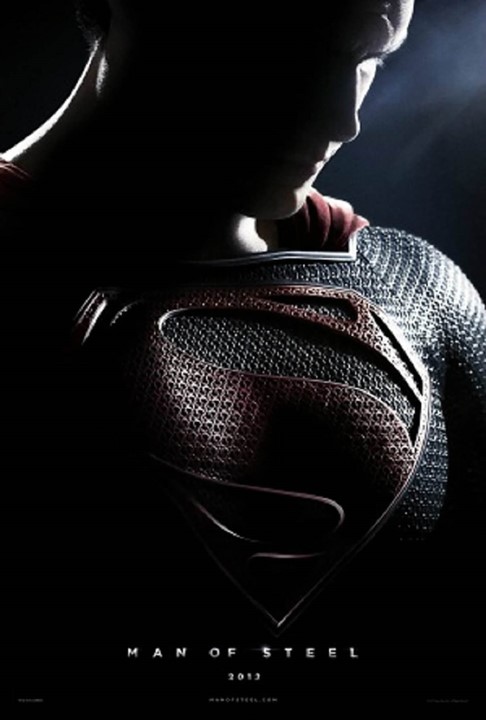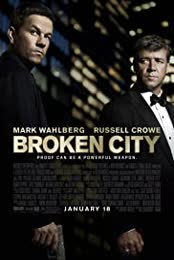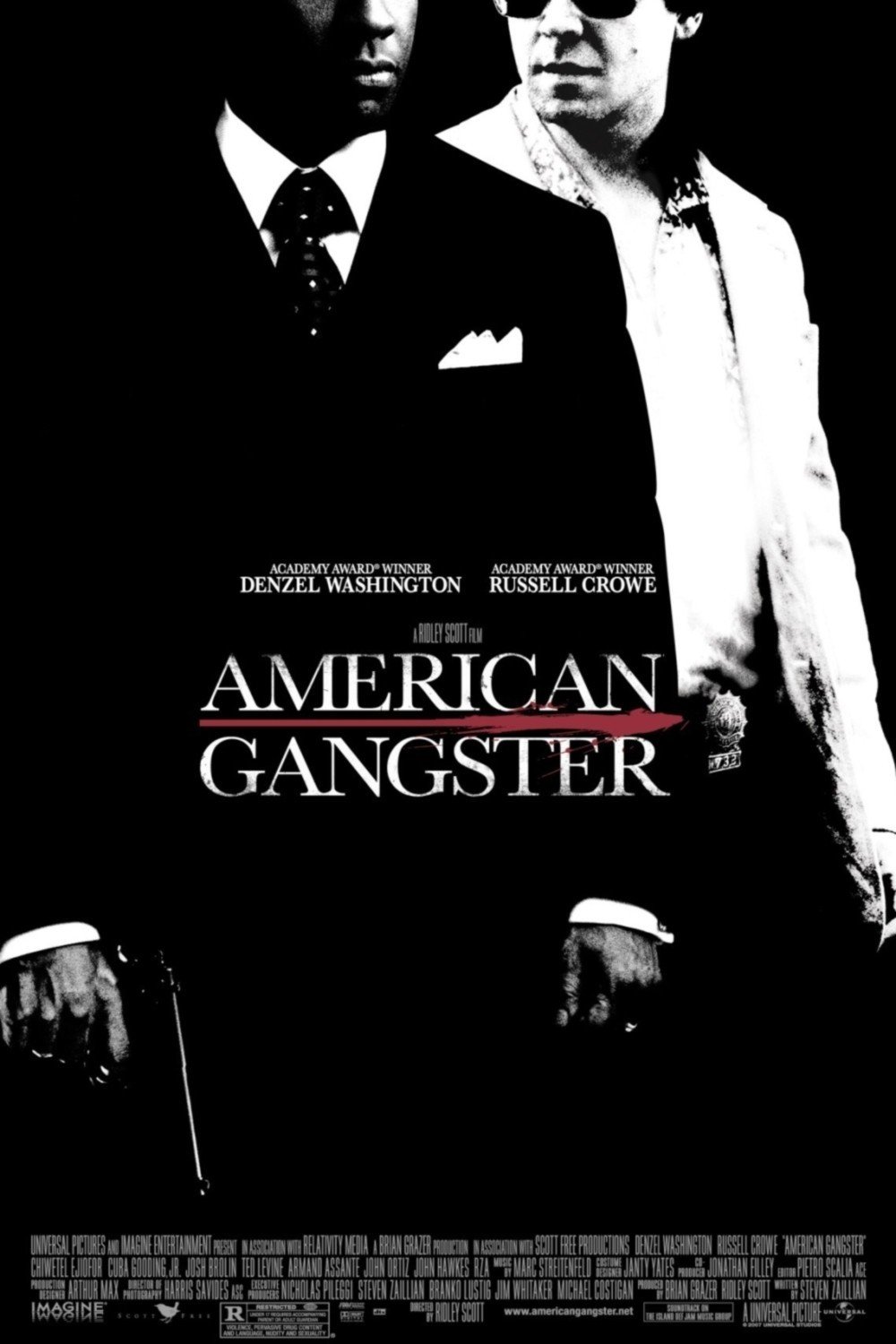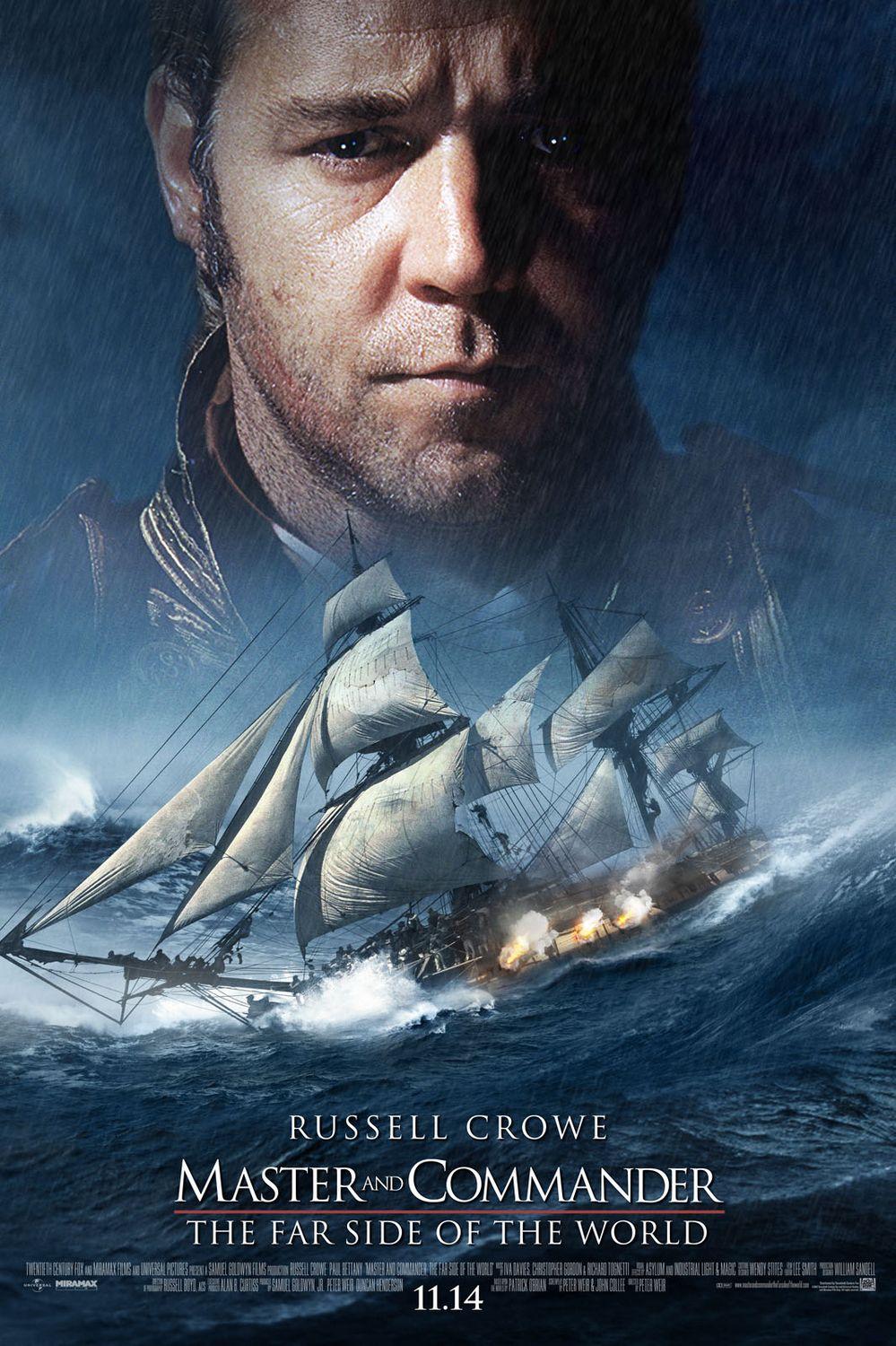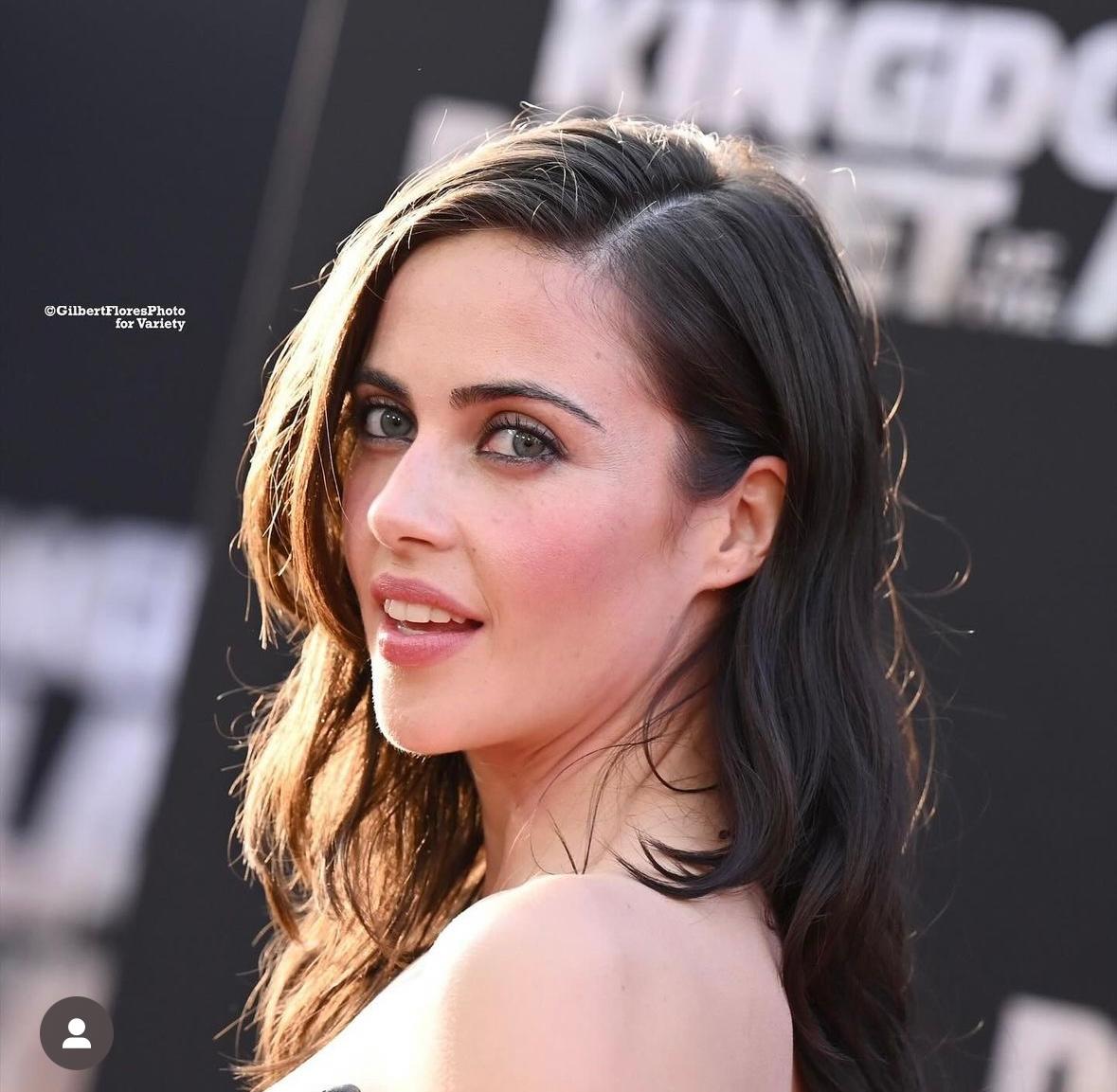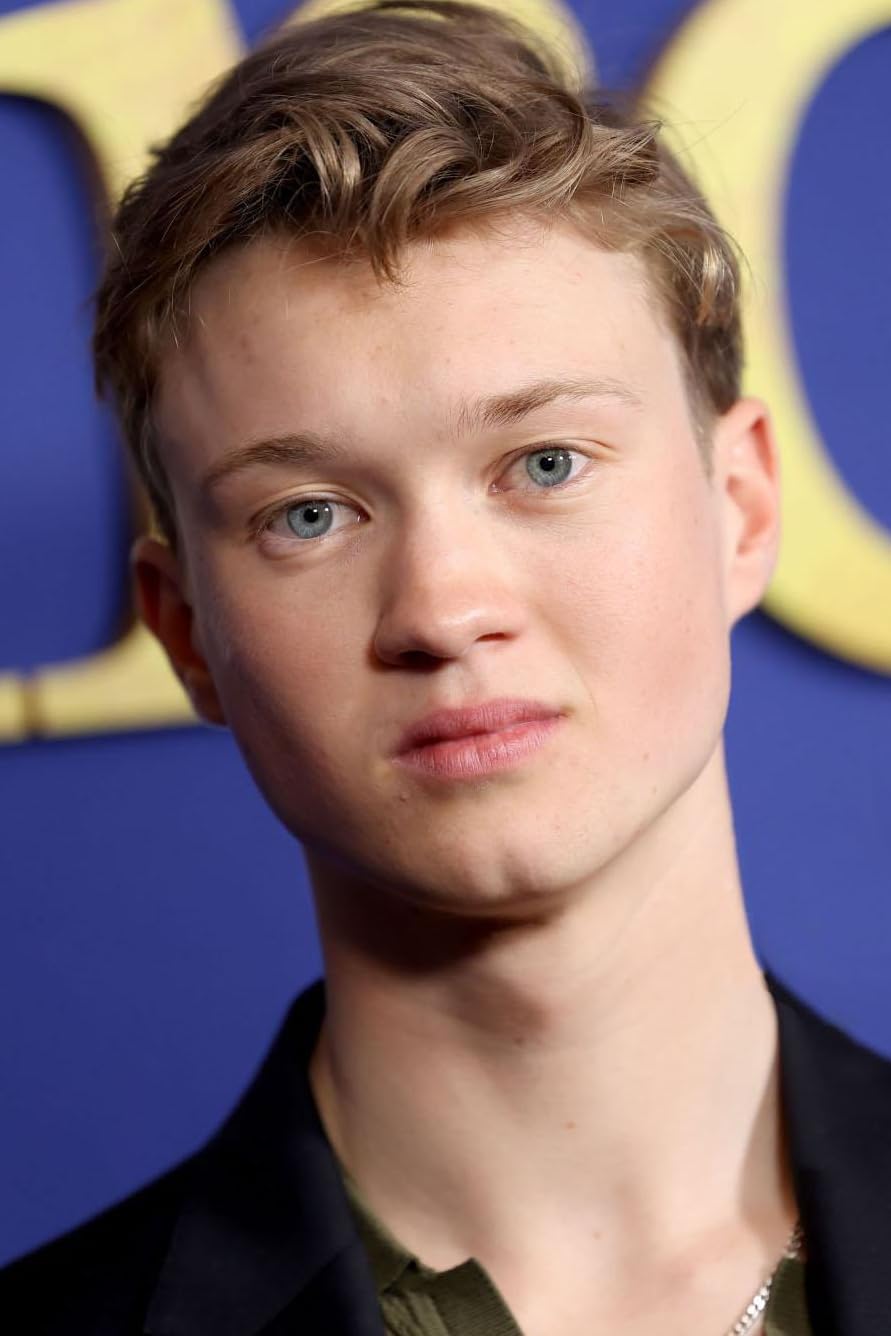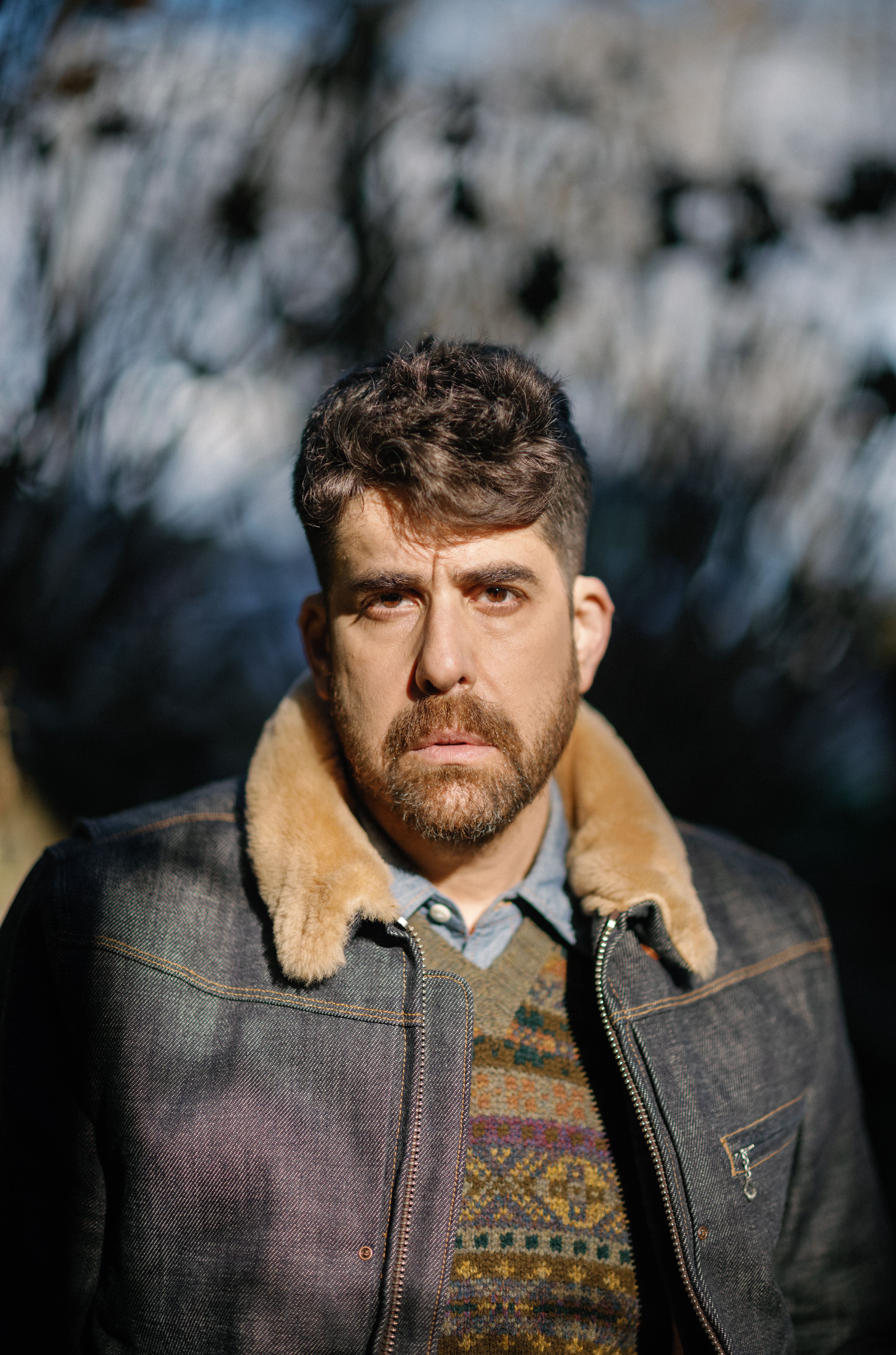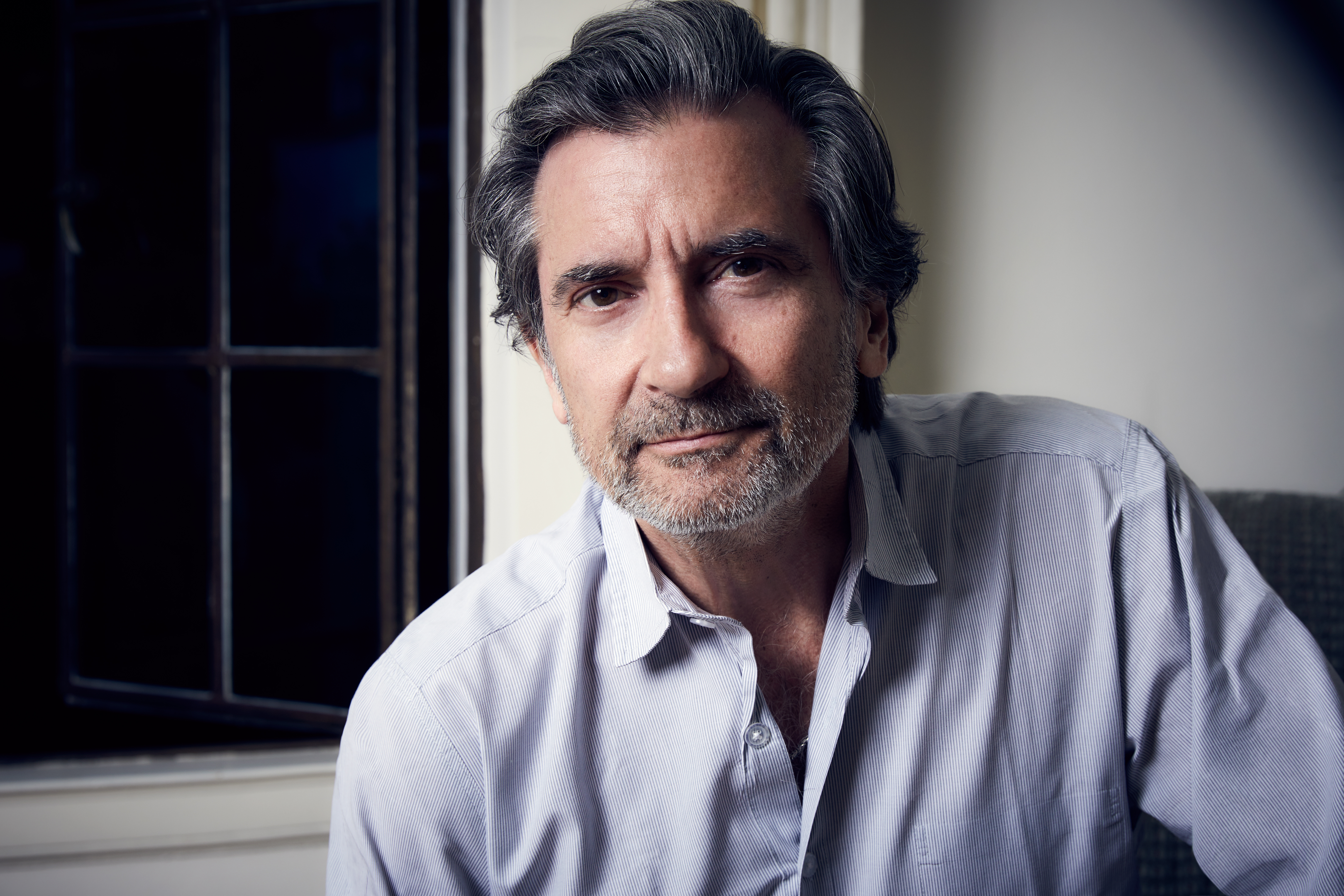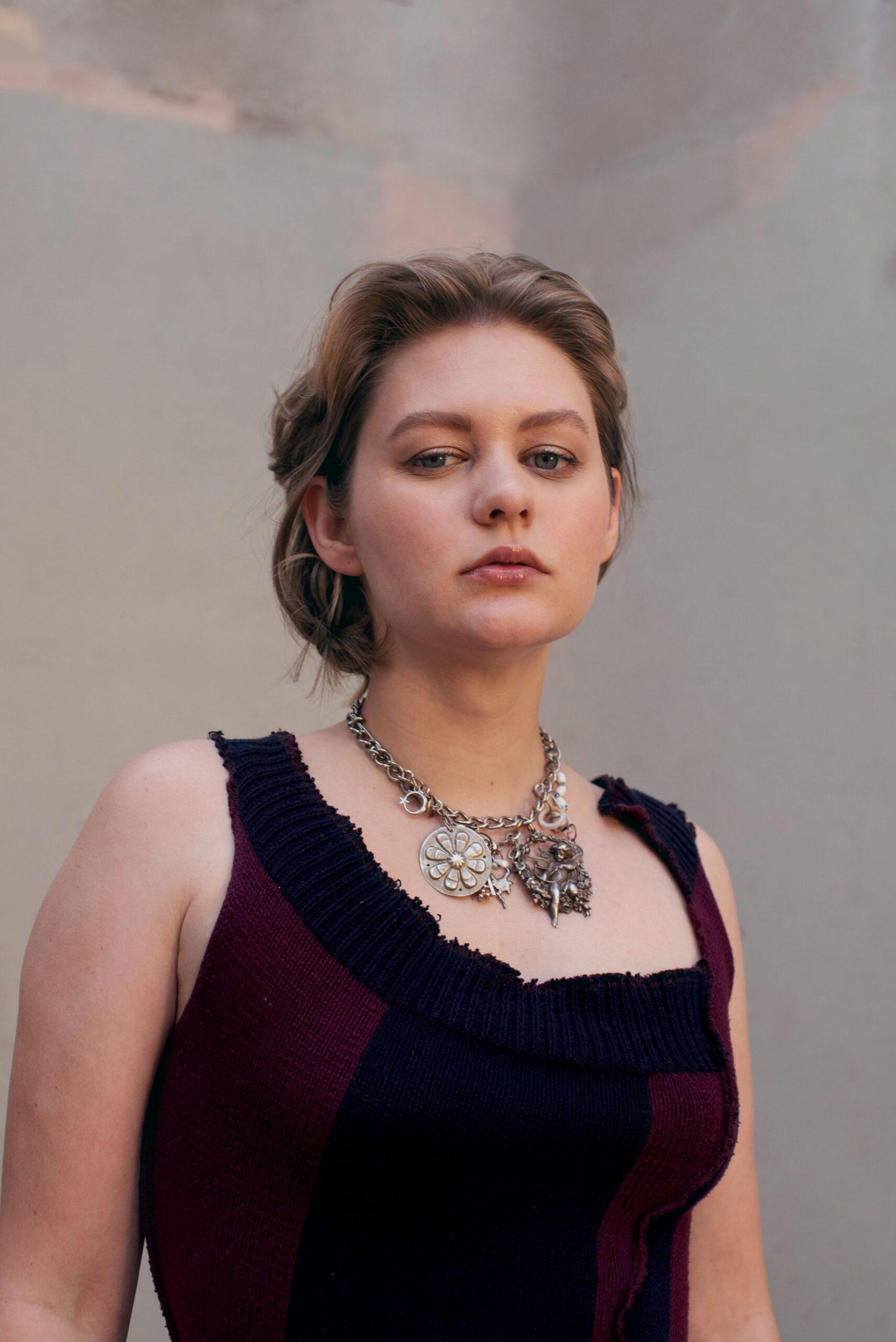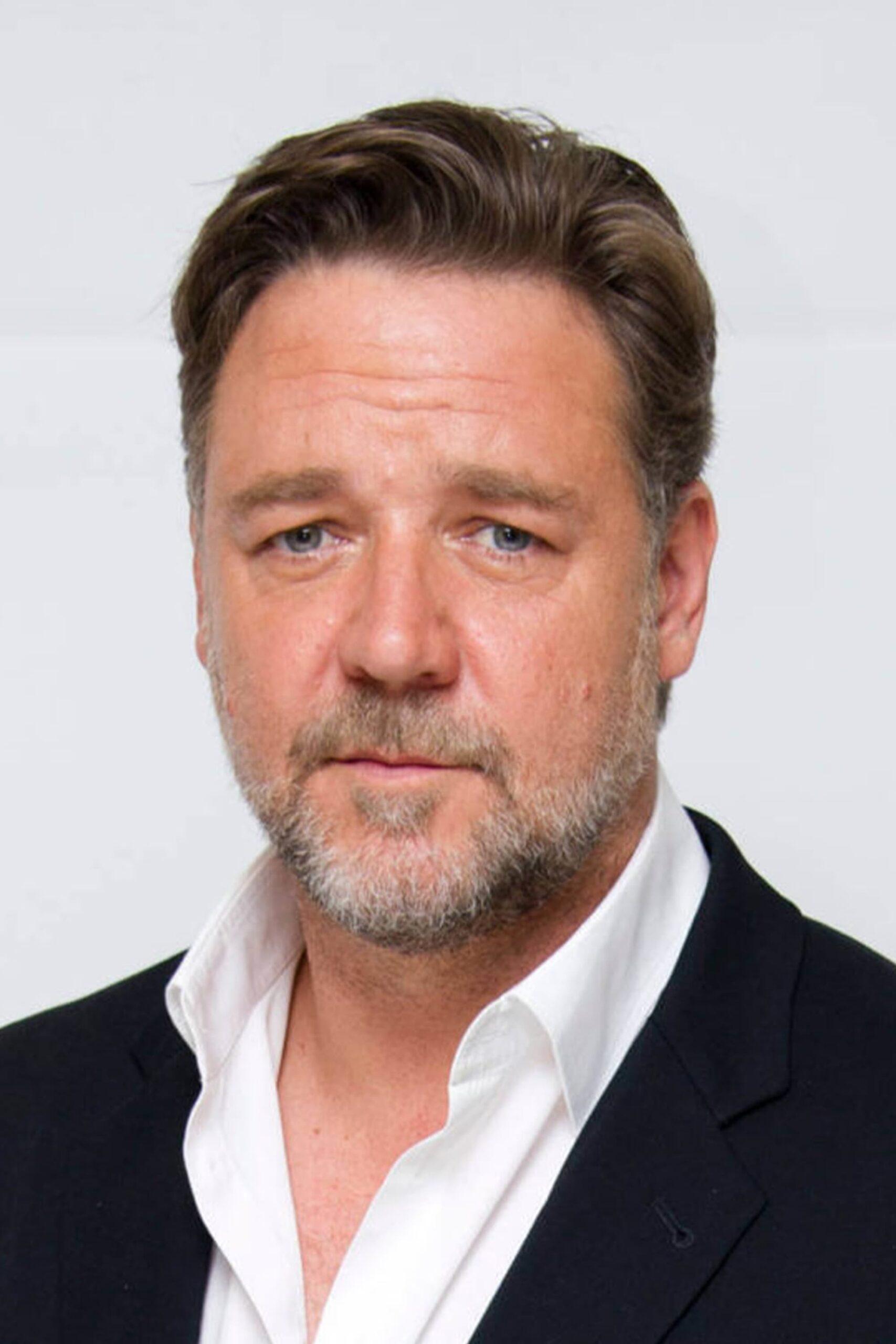
Russell Crowe
Birthdate: Apr 7, 1964
Birthplace: Wellington, New Zealand
Russell Crowe (birthname: Russell Ira Crowe) has been a major movie star since the mid-1990s, establishing a notably durable career that has—equally notably—been almost entirely free of sequels and franchises. The New Zealand-born Crowe quickly made a name for himself as a versatile, tough, swarthy, and intelligent leading man in Australian cinema, as in Jocelyn Moorhouse’s acclaimed drama, Proof (1991), with Hugo Weaving; his first starring role in writer-director Geoffrey Wright’s violent, hit debut, Romper Stomper (1992); and Crowe co-starring as a young gay man opposite co-star Jack Thompson in The Sum of Us (1994).
Russell Crowe’s Hollywood debut was a co-starring role in Sam Raimi’s Western, The Quick and the Dead (1995), starring Sharon Stone, Gene Hackman, and Leonardo DiCaprio. Crowe’s first lead Hollywood role was opposite Helen Slater in the failed FBI thriller, No Way Back (1995), and then a co-starring role opposite Denzel Washington in the indifferently received sci-fi thriller, Virtuosity (1995).
Crowe made a major impact as LAPD Office Bud White in director/co-writer Curtis Hanson’s acclaimed film version of James Ellroy’s novel, L.A. Confidential (1997), co-starring Kevin Spacey, Guy Pearce, Kim Basinger, and Danny DeVito, grossing $126 million globally and winning two Oscars (for Basinger and screenplay). After a rare comedy turn in Mystery, Alaska (1999), directed by Jay Roach and co-written by David E. Kelley and Sean O’Byrne, Crowe delivered one of his finest performances (and his first Oscar-nominated lead performance) in Michael Mann’s/Eric Roth’s extraordinary whistleblower drama, The Insider (1999), co-starring Al Pacino, with Christopher Plummer, Diane Venora, and Philip Baker Hall, and though a financial failure, solidified Crowe as one of the new major Hollywood stars, as well as receiving seven Oscar nominations.
Russell Crowe launched the new century with what may still be the biggest role of his career, his Oscar-winning best actor performance as Maximus Decimus in Ridley Scott’s Gladiator (2000), with Joaquin Phoenix, Connie Nielsen, Oliver Reed, Derek Jacobi, Djimon Hounsou, and Richard Harris, earning an astounding $503 million worldwide and winning five Oscars.
Under director-producer Taylor Hackford, Crowe co-starred with Meg Ryan in the failed thriller, Proof of Life (2000), but he more than rebounded from this with his next, his Oscar-nominated star turn in director-producer Ron Howard’s Oscar-winning A Beautiful Mind (2001), making Crowe one of the few stars to head two Best Picture Oscar winners in consecutive years, co-starring Ed Harris and Jennifer Connelly, and grossing ($316.8 million) nearly six times costs ($58 million).
Remarkably, Crowe's starring in Best Picture-nominated movies became a real pattern with his powerful lead performance in Peter Weir’s brilliant seafaring adventure-drama, Master and Commander: The Far Side of the World (2003), co-starring Paul Bettany and grossing a good $211.6 million. Crowe reunited with Howard on the Oscar-nominated boxing biopic, Cinderella Man (2005), co-starring Renee Zellweger and Paul Giamatti, and earning a fair $108.5 million globally.
Alas, the reunion of Russell Crowe and Ridley Scott, the rom-com A Good Year (2006)—with Albert Finney, Marion Cotillard, and Tom Hollander--proved a commercial bomb for distributor 20th Century Fox. Crowe’s next was more successful ($71.2 million), 3:10 to Yuma (2007), the second and inferior film version of Elmore Leonard’s Western short story, directed by James Mangold and co-starring Christian Bale, Peter Fonda, Gretchen Mol, and Ben Foster.
Russell Crowe’s third movie under Ridley Scott’s direction was the solid American Gangster (2007), the biopic written by Steven Zaillian and co-starring Denzel Washington, Chiwetel Ejiofor, Cuba Gooding Jr., and Josh Brolin, and earning a potent $266.5 million. Crowe worked back-to-back with Scott on the CIA thriller co-starring Leonardo DiCaprio, Body of Lies (2008), and nearly doubling ($119 million) on a $67 million budget.
Crowe’s third movie in four years with Scott (and his first as a producer) was the high-octane version of Robin Hood (2010), proving to be a solid box-office hit ($322 million) with a distinguished cast including Cate Blanchett, William Hurt, Mark Strong, Oscar Isaac, Danny Huston, Eileen Atkins, and Max von Sydow. Writer-director Paul Haggis cast Russell Crowe as a lead in the thriller, The Next Three Days (2010), a remake of the French movie, Pour elle (2008), with Elizabeth Banks, Brian Dennehy, Olivia Wilde, and Liam Neeson, grossing $67.4 million or over double costs ($30 million).
Crowe worked with co-writer/director RZA on the interesting but flawed martial arts homage, The Man with the Iron Fists (2012), with the eclectic ensemble of Cung Le, Lucy Liu, RZA, Rick Yune, and Dave Bautista. Crowe’s first musical came next, as he played a fearsome Javert in director Tom Hooper’s film version of Alain Boubil’s and Claude-Michel Schonberg’s hit musical of Dumas’ Les Miserables (2012), co-starring Hugh Jackman, Anne Hathaway, Amanda Seyfried, Eddie Redmayne, Helena Bonham Carter, and Sacha Baron Cohen, while winning three Oscars of eight nominations, and grossing $442.3 million globally.
After the tepid New York crime drama, Broken City (2013), with Mark Wahlberg, Crowe appeared in his first superhero blockbuster, the Zack Snyder-directed Superman movie, Man of Steel (2013), with Henry Cavill, Amy Adams, Michael Shannon, Kevin Costner, Diane Lane, and Laurence Fishburne, grossing $668 million globally. The commercial-critical bomb, Winter’s Tale (2014), from writer-director Akiva Goldsman, followed Crowe in a supporting role, opposite Colin Farrell and Jessica Brown Findlay.
Russell Crowe’s final movie as the star of a string of period epics was Noah (2014), Darren Aronofsky’s Biblical drama with Jennifer Connelly, Ray Winstone, Emma Watson, and Anthony Hopkins, and grossed a potent $359.2 million worldwide. In his debut as director-star, Crowe returned to Australia for his well-reviewed Outback drama, The Water Diviner (2014), with Olga Kurylenko, Yilmaz Erdogan, and Jai Courtney, and earned a good $38.2 million.
After working with Italian director Gabriele Muccino in Fathers & Daughters (2015), a U.S.-Italian co-production that bombed at the box office, Crowe went wild with writer-director Shane Black in the raucous buddy comedy, The Nice Guys (2016), co-starring Ryan Gosling and Kim Basinger, and premiering at the Cannes Film Festival, followed by a mild box office return of $62.8 million.
Russell Crowe took on the supporting character of Dr. Jekyll and Mr. Hyde opposite star Tom Cruise in the critical and commercial bomb, The Mummy (2017), failing to reboot Universal Pictures’ “Dark Universe” project of contemporary versions of titles in its rich horror library. During this period, Crowe increasingly shifted into supporting roles, as in writer-director-star Joel Edgerton’s Boy Erased (2018), based on Garrard Conley’s memoir, with Crowe cast opposite Lucas Hedges, Edgerton, and Nicole Kidman.
Crowe returned to Australia and worked with rising Aussie director Justin Kurzel in another supporting role in the historical Western, True History of the Kelly Gang (2019), with George MacKay, Essie Davis, Nicholas Hoult, Thomasin McKenzie, and Charlie Hunnam. Though filmed in 2019, Crowe’s starring role in writer-directors M.A. Fortin’s and Joshua John Miller’s horror movie, The Georgetown Project (date to be announced), with Sam Worthington, David Hyde Pierce, and Samantha Mathis, remained unseen theatrically. Crowe starred in the first movie theatrically released after the COVID-19 lockdown, Unhinged (2020), which wasn’t a commercial hit but earned Crowe excellent reviews.
Russell Crowe joined the Marvel Cinematic Universe for the first time in a supporting role as Thor in Thor: Love and Thunder (2022), co-written and directed by fellow New Zealander Taika Waititi, and earned $761 million. In a comedy departure, Crowe co-starred with Zac Efron in the war-comedy biopic, The Greatest Beer Run Ever (2022), co-written and directed by Peter Farrelly, and premiering at the Toronto Film Festival before being released theatrically (and later streaming) by Apple TV+.
Russell Crowe’s second movie as writer-director-star was the thriller-drama, Poker Face (2022), with Liam Hemsworth and RZA, and opening in theatrical before video-on-demand. In a rare foray into the horror genre, Crowe played the real-life figure of Father Gabriele Amorth in The Pope’s Exorcist (2023), with Daniel Zovatto, and proved a hit for Sony Pictures with a return of $61 million on an $18 million budget. Crowe’s second MCU project was opposite Aaron Taylor-Johnson and Ariana DeBose in Kraven the Hunter (2024), directed by J.C. Chandor.
Crowe then starred in the $25-million Filipino-set war movie, Land of Bad (2023), directed by co-writer (with David Frigerio) William Eubank, and co-starring Milo Ventimiglia, Liam Hemsworth, and Luke Hemsworth. Crowe returned to Australia to star in co-writer/director Adam Cooper’s version of E.O. Chirovici’s crime novel, Sleeping Dogs (date to be announced), with Karen Gillan and Marton Csokas.
Crowe starred in another exorcism-themed horror movie, The Exorcism (2024), with Ryan Simpkins, Sam Worthington, Adam Goldberg, Chloe Bailey, Adrian Pasdar, and David Hyde Pierce under Joshua John Miller’s direction.
Russell Crowe then portrayed the great American painter Mark Rothko in the drama, Rothko (2024), directed by Sam Taylor-Johnson, and co-starring Aisling Franciosi, Aaron Taylor-Johnson, Michael Stuhlbarg, and Jared Harris. Co-starring with Stephan James under Rapman’s direction, Crowe starred in American Son (date to be announced), writer Dennis Lehane’s English-language remake of the French prison drama, A Prophet (2009). Under Tyler Atkins’ direction, Crowe co-starred with Brenton Thwaites in director Tyler Atkins’ MMA-themed drama, The Beast in Me (date to be announced).
Crowe portrayed notorious Nazi mastermind and Hitler’s second, Hermann Göring, in director-writer James Vanderbilt’s post-WW2 drama, Nuremberg (date to be announced), co-starring Rami Malek, Michael Shannon, and Richard E. Grant. Crowe played a besieged club owner in co-writer/director Derrick Borte’s thriller, Bear Country (date to be announced), and then Crowe turned to the director’s chair with a documentary titled, Last Breath (date to be announced), chronicling his efforts to work as an actor and as a musician with his band, Indoor Garden Party, as they toured Europe, the US, and Australia.
Russell Crowe Photos and Videos
Personal life
Russell Crowe was born and raised in his early years in Wellington, New Zealand by parents Jocelyn and John Crowe (both set caterers). He has one brother, Terry; he also has two cousins, Jeff and Martin Crowe, both captains of New Zealand’s national cricket team. Crowe’s family moved to Sydney, Australia. Jocelyn Crowe’s godmother was the producer of Skyforce (1971-1973), and hired young Russell to voice dialogue lines opposite co-star, Jack Thompson.
Crowe studied at Vaucluse Public School and Sydney Boys High School. Crowe’s family returned to New Zealand when he was 14 years old and settled in Auckland, where he studied at Auckland Grammar School and Mount Roskill Grammar School; Crowe left school at age 16 when he decided to pursue acting. Russell Crowe was married to actor Danielle Spencer from 2003 to 2018 when they divorced; the couple has two children, Tennyson Spencer Crowe and Charles Spencer Crowe. Crowe’s height is 5’ 11½ ”. Russell Crowe’s net worth is $120 million.
Known For
Awards
Winner, Best Actor, Academy Awards (2001); Two-time Nominee, Best Actor, Academy Awards (2000, 2002); Winner, Best Actor, BAFTA Award (2002); Two-time Nominee, Best Actor, Academy Awards (2000, 2001); Three-time Nominee, Best Actor/Best Supporting Actor, Australian Academy of Cinema and Television Arts Awards (2015, 2018, 2020); Two-time Winner, Best Actor/Best Actor-Limited Series or Movie made for TV, Golden Globe Awards (2002, 2020); Three-time Nominee, Best Actor, Golden Globe Awards (2001, 2004, 2006); Winner, Hollywood Star on the Walk of Fame (2010); Winner, Best Actor, Los Angeles Film Critics Association Awards (1999); Three-time Nominee, Best Fight/Best Male Performance, MTV Movie + TV Awards (2001-2002); Two-time Winner, Best Actor/Best Ensemble, National Board of Review Awards (1999, 2012); Winner, Best Actor, National Society of Film Critics Awards (2000); Nominee, Best Actor, New York Film Critics Circle Awards (1999); Winner, Male Star of the Year, ShoWest USA (2001).
Russell Crowe Movies
actor
Previous (65)
Facts About Russell Crowe
Māori Roots: Russell Crowe identifies with the Māori iwi (tribal group), the Ngāti Porou of northeast New Zealand’s north island, the tribe of his maternal great-great-grandmother, and also has Welsh, English, German, Scottish, Irish, Italian, Norwegian, and Swedish.
Cricket Connections: Crowe is the nephew of famed New Zealand cricketer Dave Crowe, and has two cousins, Martin, and Jeff Crowe, who have been captains of New Zealand’s national cricket team.
Philanthropy and Causes: Russell Crowe has donated to Jewish schools which were the target of anti-Semitic attacks and arson. Crowe has also contributed money to economically struggling schools in Australia. Crowe also contributed money to revive and reopen an acclaimed Beirut restaurant previously supported by the late Anthony Bourdain. Crowe raised over $400,000 to support the firefighters of New South Wales during the 2019 Australian bushfires.
Causes: Crowe has been a vocal opponent of the Australian policy of detention of immigrants, who are held in off-shore facilities which he has termed as “fucking disgraceful” and “a nation’s shame.” Crowe then offered to personally resettle displaced refugees from the facility.
Incidents: has had several public incidents involving violence, scuffles, and nasty arguments, including with businessman Eric Watson, producer Malcolm Gerrie, and the Mercer Hotel concierge Nestor Estrada, at whom Crowe threw a phone and was arrested by NYPD, pleading guilty and having a civil suit settlement for damages. Crowe has commented since that the last incident in particular “indelibly changed me.”
Russell Crowe News
People Also Searched For


